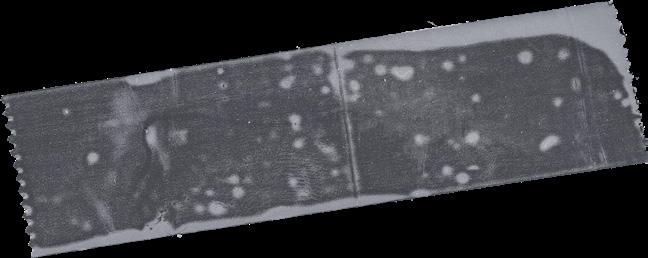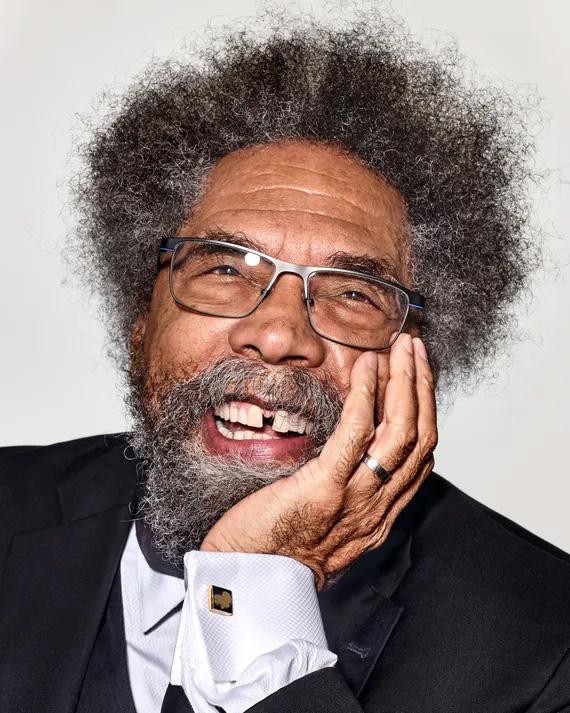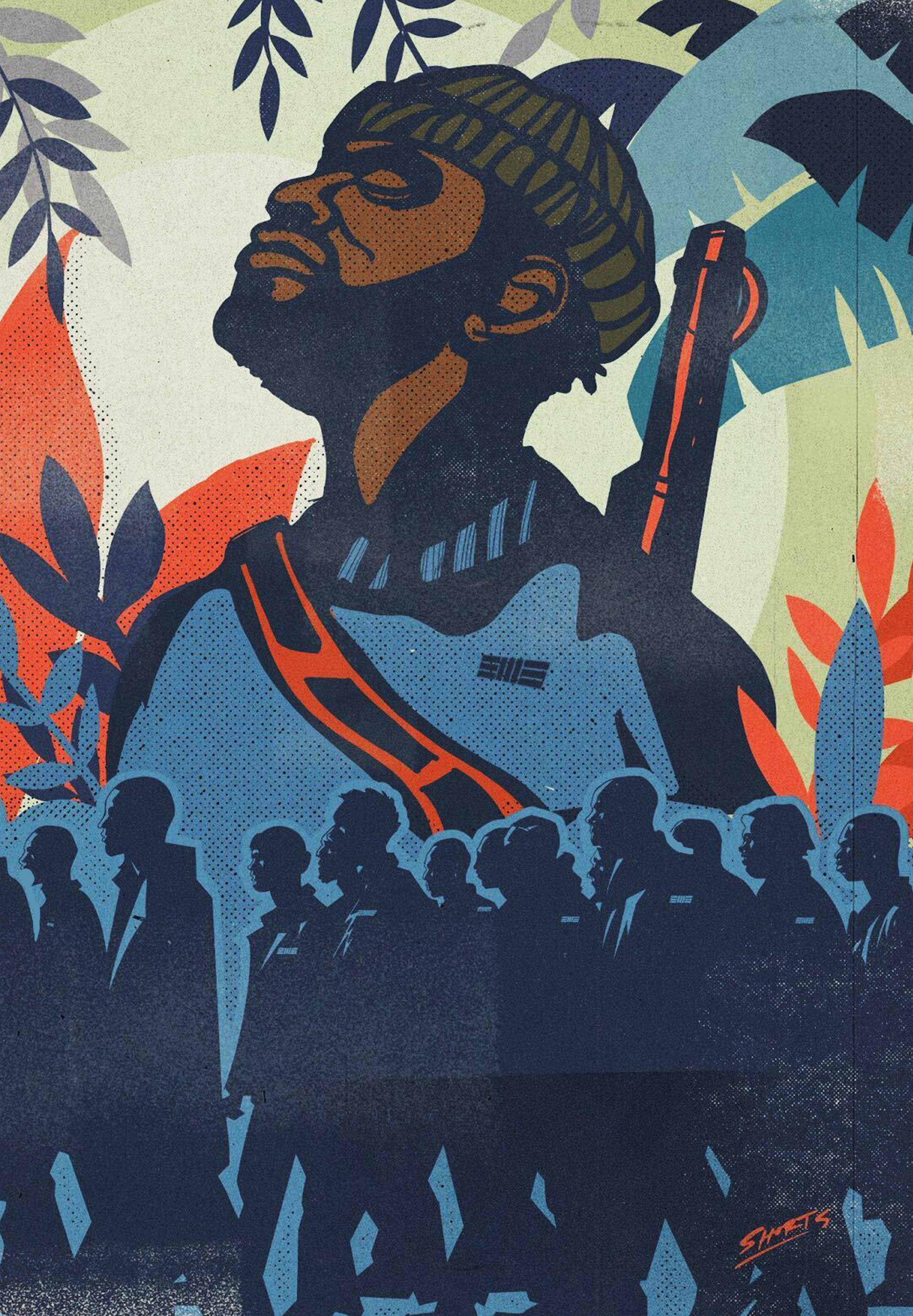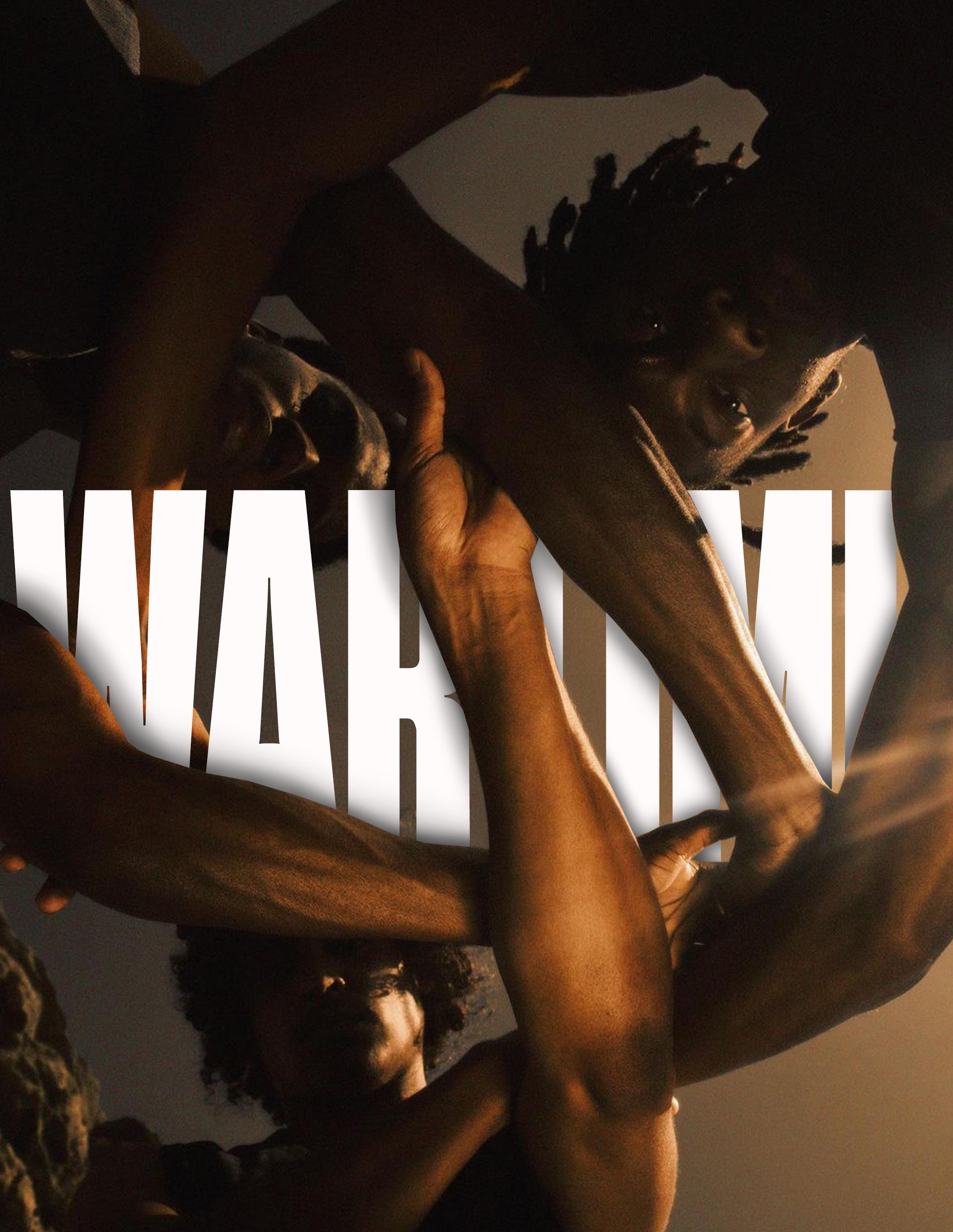






Shit’s crazy out here, ain’t it? Sometimes it feels like it’s too much. Like the world is moving a mile a minute, like every day things are going from bad to worse.
Ain’t No Breaks Out Here: The economy is crumbling, everything is expensive, the weather is wild, the murder rate is climbing, women are being snatched off the streets, the election looms large, and America still prioritizes funding for wars over support for the poor.
So, what the hell is happening? What does this mean for us, for our people, our families, our communities? And how do we maintain our sanity as the world around us seems to burn?
Welcome to the 6th edition of WARTIME. In these pages, brothers just like you strive to make sense of the chaos engulfing our world. We’ve dedicated time to research, design, and present the real talk on this year’s local and national elections, ongoing international conflicts in Palestine and the Congo, and more, alongside some pivotal interviews with key political figures active today.
Like you, we’re trying to keep our heads above water. That’s why we’re also sharing proven tips for maintaining and thriving mentally, physically, and emotionally in this American nightmare.
This edition’s theme is “New Men Must Be Born: Healing During Wartime.” We hope by the time you finish reading, you’ll realize you’re not alone in this struggle. Thousands of brothers, just like you, love you—no matter how “unmanly” we were taught to believe that is—and we need you to join us in rising to meet this moment and protect our people.
If you’re still reading, you’re exactly where you need to be. We’ve poured a lot of work, energy, and love into this publication. Take your time with it; then pass it on to someone who needs it too.
Peace, Love, and Power,

NEW MEN TAKING THE GET YOUR MUST BE BORN TORCH MIND RIGHT

06 10 13 12 20 09 22 08 14 MY JOY MY FEAR MY PROMISE WELLNESS AND DEFENSE BLACK POWER HEALING DURING WARTIME NEW MEN TOUR STOPS HEALING FROM THE FIELD



28 25 30 34 24 26 32 36 40 RESPECT THE PROCESS ALL POLITICS ARE LOCAL BLACK AND PALESTINIAN SOLIDARITY
RECLAIMING OUR POWER
DIASPORA THE DISCIPLINE DISPATCHES
FIRST 90 DAYS INTERVIEW WITH CLAUDIA DE LA CRUZ INTERVIEW WITH DR. CORNEL WEST ENJOY

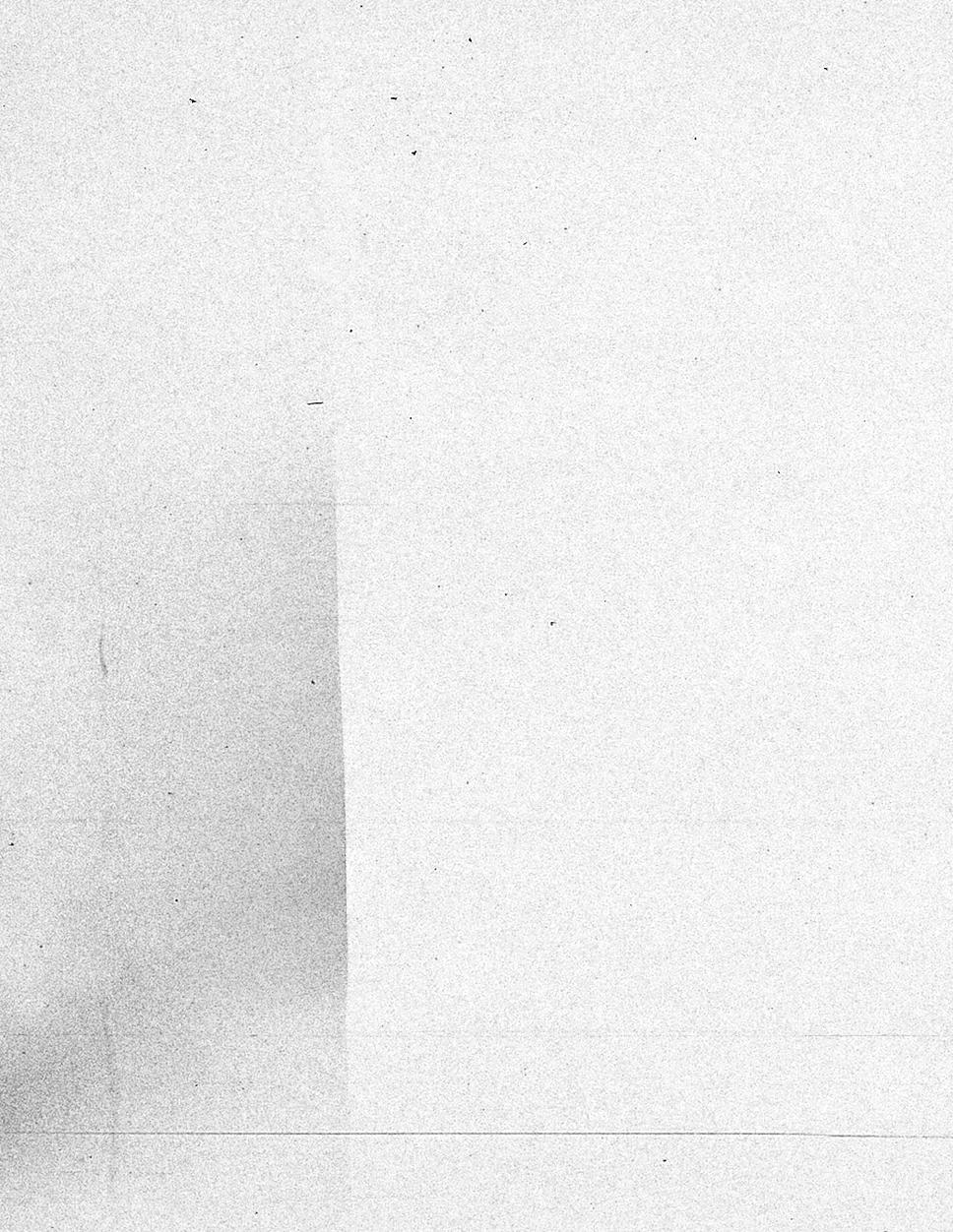
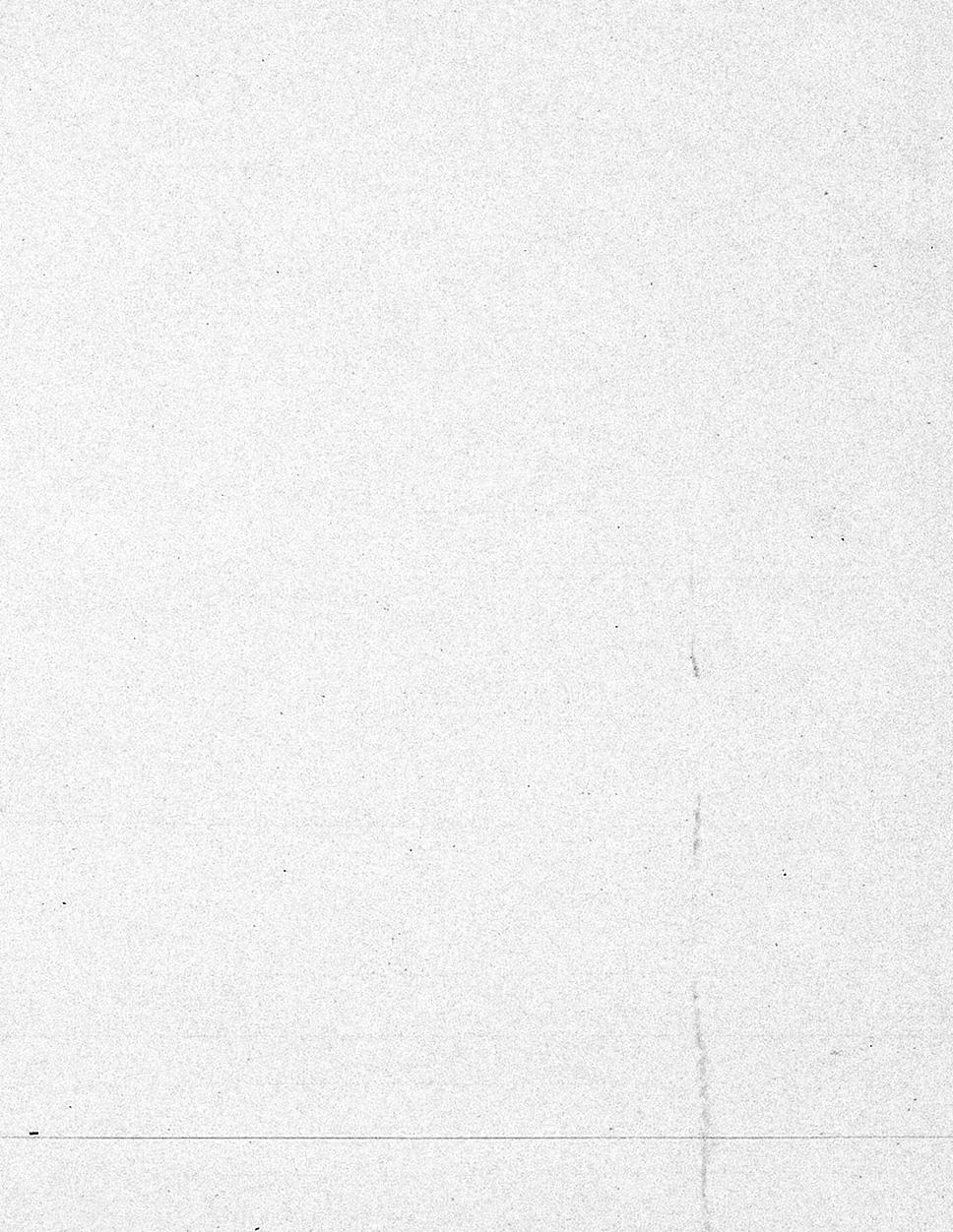
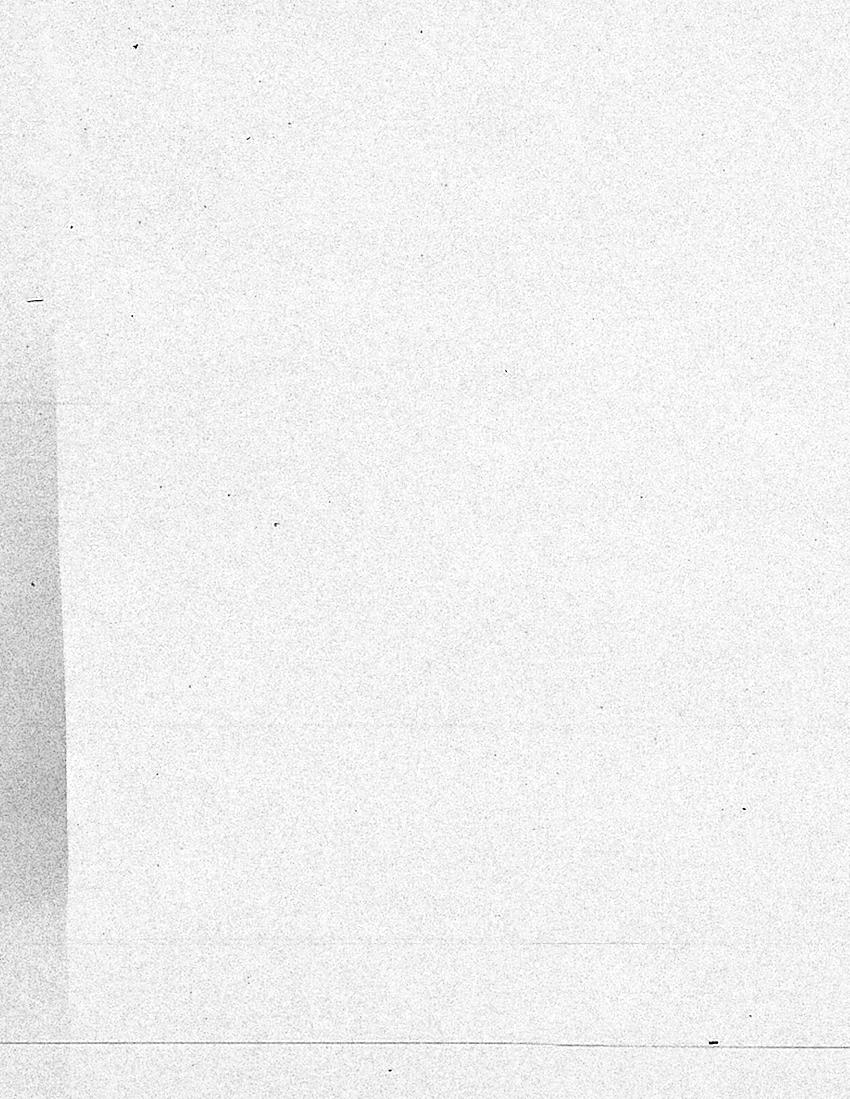

If we’re being honest: Everybody is. You can see how they move when it’s mentioned. You can see the fear in their eyes when we bring it up.
But we aren’t afraid of it.
We deserve Power. We need Power. To do with it what we please. To share it, expand it, use it to define our path and determine our future.

Don’t be scared. This empire has taught us that power is control, conquest, domination and exploitation. That’s not power; it’s cowardice. It’s frail. It’s fleeting. It must always remind others of its presence.
Power is the ability to define phenomena, and the ability to make these phenomena act in a desired manner. Black Power is self determination to live a full and meaningful life. Nothing matters without the Power to make that happen.
Power is freedom. Flying is a metaphor for Freedom. Birds symbolize freedom like no other animal.
Our symbol of Black Power is the Crow. The crow is constantly vilified and associated with evil and death. They are hated by the Western world because they are Black. The idea of “black” as pure evil is a white supremacist invention.
But, the Crow is one of the most intelligent and compassionate birds. They have funerals for their dead. Crows symbolize transformation and change. They are watchful creatures that have a sharp and powerful foresight. Crows are believed to be cleansers of both land and mind.
They also move together and protect one another. They travel in a flock. Flocks move as one -- in unity. They are formless until they are not. If they choose it, they can be one unified force that can defeat any threat. The individual bird never loses its autonomy but, in fact, chooses to align and move with the flock for the greater good of them all.
We have nothing to fear of Black power. Black Power is ours for the molding. It must become our goal again. Without it we are lost.
“Libation is found throughout the African World: on the continent as well as in the Americas, the Caribbean, and other parts of the world where Africans dwell. The significance of this ritual transcends its distribution across the immense time/space correlation that is occupied by the African experience of life. Libation is an immensely important part of the African cultural equipment.”
— KIMANI NEHUSI



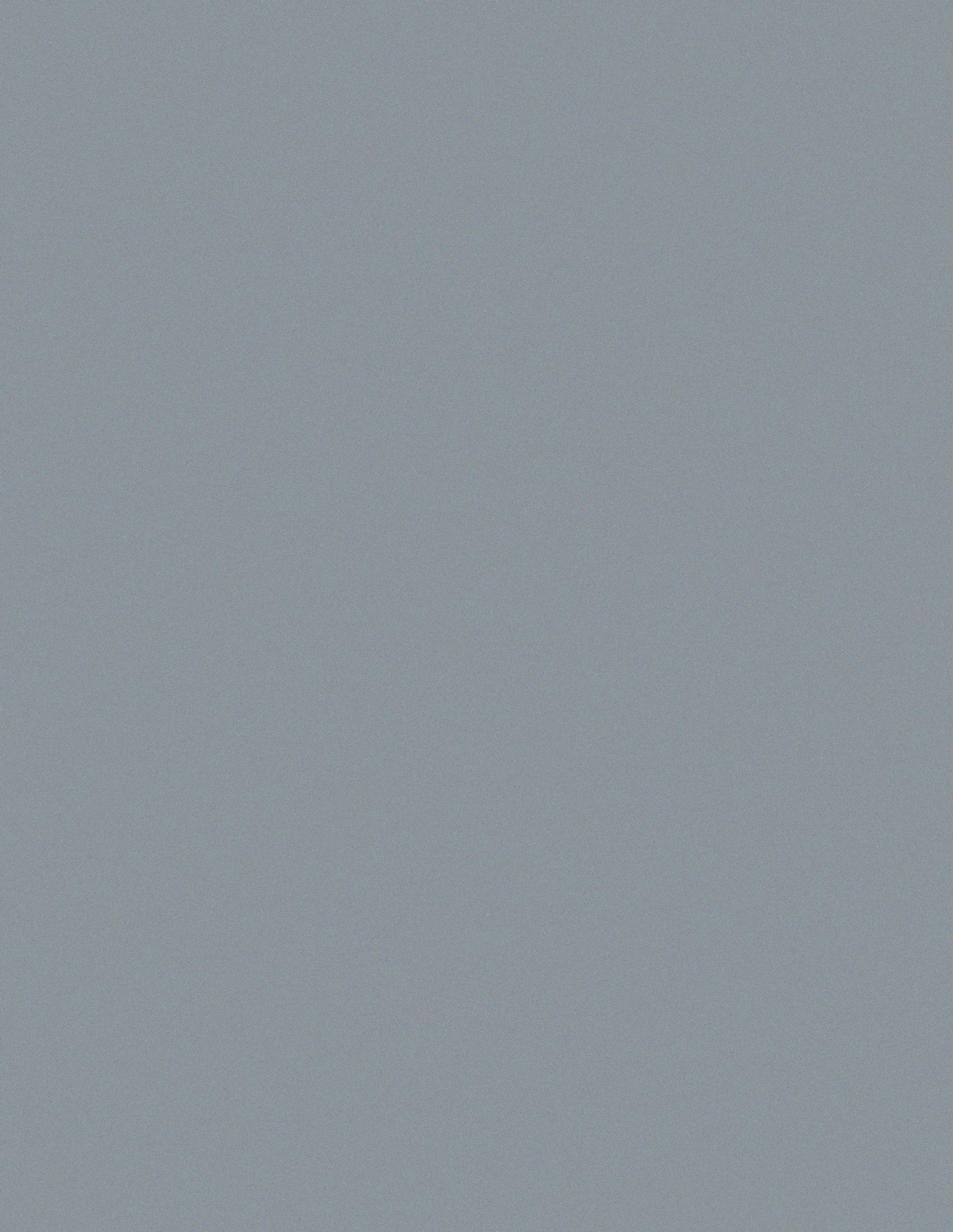

Written By Brent Maximin Photography by Braylon Dion
Capitalism and patriarchy, as structures of domination, work overtime to undermine and destroy the extended kin unit.”
— bell hooks
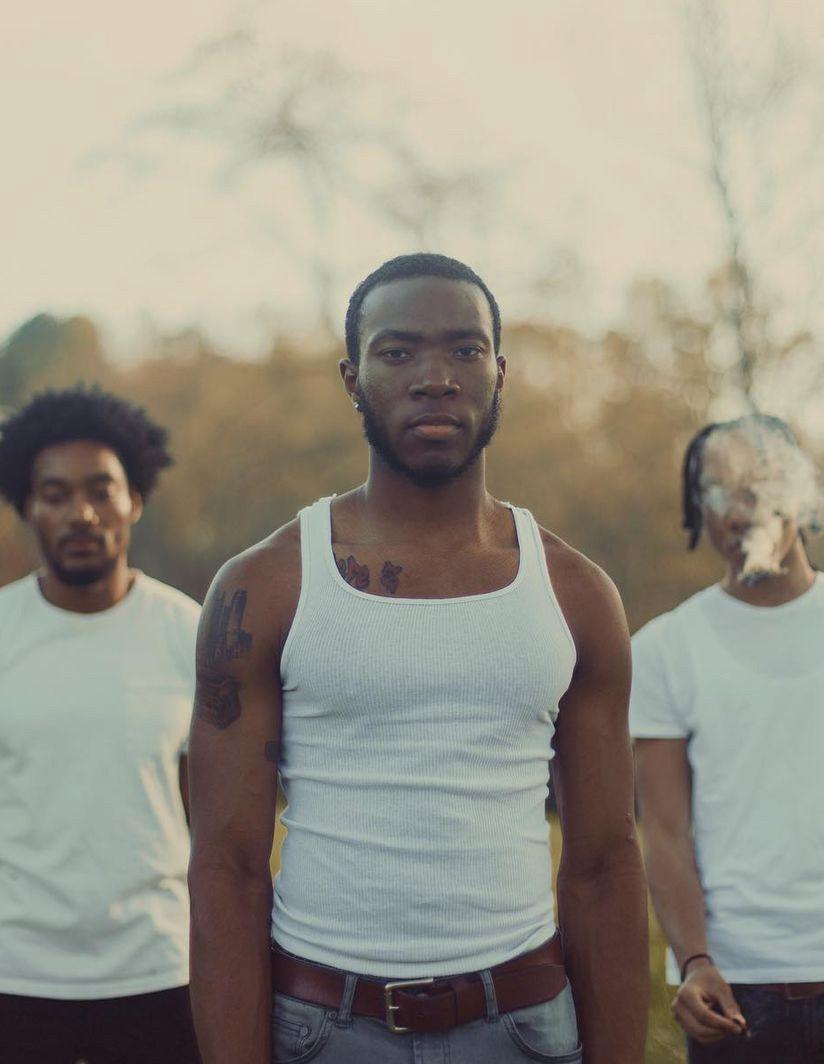
“We are each other’s harvest: we are each other’s business: we are each other’s magnitude and bond.” — Gwendolyn Brooks
Capitalism, patriarchy, and racism have formed an unholy trinity for centuries, forcing us to worship their bound and intertwined structures. Each thrives on the exploitation of those deemed weak, poor, or lesser: women, Black, Brown, Indigenous, and immigrants. Their poison permeates the water we drink, the crops we grow, and the trees we use to build our homes. It surrounds us, lying to us, corrupting us, and convincing us that someone else must lose for us to win. It has stripped away our support systems and replaced them with inequitable, state-funded, state-run programs that keep us under the boot of a country built by us, but not for us.
However, this doesn’t have to be our reality. These structures are formidable, but they are not invincible. We know a better world is possible.
We must reject the white supremacist lies force-fed to us since the moment we were stolen from our ancestral homes. We must discard the colonialist propaganda that portrays self-care as an isolated activity.
We must deny the capitalist myth that rest, care, and love must be earned rather than freely given and claimed. We must refuse the false divisions that prevent us from being a healthy community and village with our people and other oppressed people.
To forge a new Black future, we must reclaim our legacy of community care, collectivism, and holding space for each other. Our heritage is embodied in the sousou, not in PPP loans or LLC scams. Our history is not rooted in incarceration and retribution but in collective accountability, healing, and restoration. Our legacy is not cut-throat competition for a dollar but mutual aid, shared resources, and enveloping each other in support.
If we look around, we can see that the work is already underway. Our brothers and sisters are actively building a better world, guided by ancestral memories of a more just future. Our legacy lives through Pam Africa and the MOVE 9; it thrives in initiatives like the Detroit People’s Food Co-op and the Black Rest Project. At Black Men Build, our healing programs contribute to this mighty tradition. Our men’s circles, boxing and yoga programs, our meditation practices, and survival programs are integral to the tapestry that Black men across this country are collectively weaving. Staying engaged in the struggle hinges on our ability to commit to healing individually and collectively. There is a war outside, but we cannot hope to achieve real changes in our communities if we refuse to battle the monsters within our ranks and within us.
Written by Dr. Armen Henderson

“There’s a man at the door with a gun.”
Last month in Miami, a distressed Black mother dialed 911 as her eldest son faced a mental health crisis. The responding officers shot him nine times in the back, leaving him paralyzed. He now faces felony assault charges and awaits trial in jail—ironically, now under the care of trained mental health professionals. This tragedy is a stark metaphor for the state of Black men’s mental health in America: calling for help can sometimes place us in even greater danger.
Our community often lacks the tools to de-escalate mental health crises safely. Ignored symptoms can lead Black men to suffer in silence, turn to substance abuse, or worse, consider suicide, most often using firearms. Compounding this, we confront a relentless existential crisis: inadequate wages, escalating living costs, and a harsh climate, making survival increasingly difficult. Our children face violence in schools, we are dispropor-
To keep your mind right, we must:
tionately targeted by mass incarceration, and our cultural representations are often distorted for profit. Consequently, Black men have the lowest life expectancy among all demographic groups.
Research shows we have the highest rates of undiagnosed depression and are the least likely to seek professional help, which rarely reflects our community. Research on our mental health is grossly insufficient, yet we face the highest rates of suicide attempts and completions.
Facing these “men at the door with guns,” both literal and metaphorical, survival means we must sometimes disarm the figurative enemy within ourselves.
By raising awareness and reducing stigma, we stand a better chance of healing. Black man, my brother, I’ve seen the future: we heal. But first, we must be prepared to survive. Together.



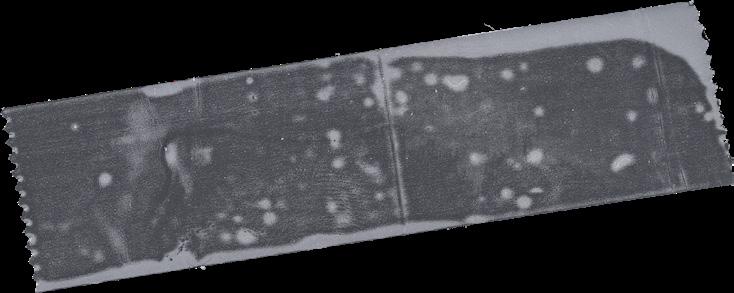
For Black men and boys, care is often a guise for control. Schools, foster care, jails, and prisons offer a type of care that curtails freedom, a stark contradiction to the benevolent care we aspire to. Christina Sharpe frames our plight: “...we are Black peoples in the wake with no state or nation to protect us, with no citizenship bound to be respected.” This disconnect underscores the precariousness of being viewed as property by the state.
State-sanctioned care often means captivity. Data from The Sentencing Project shows that 1 in 81 Black men in America is incarcerated. This does not account for those under the “care” of hospitals and other institutions. Even initiatives like My Brother’s Keeper focused on individual improvement, sidestepping the structural inequalities that perpetuate violence in Black lives.
At BMB, we champion the comprehensive development of Black communities, embracing Audre Lorde’s assertion, “Caring for myself is not self-indulgence, it is self-preservation, and that is an act of political warfare.” This care involves accessing therapeutic services, fostering accountability, engaging in physical activity, and celebrating our culture—ensuring we are seen as whole beings. Our Hubs embody this practice on a daily basis. Check out what we’ve been doing in our Hubs across the country! Peace 9s!
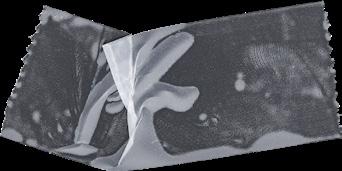

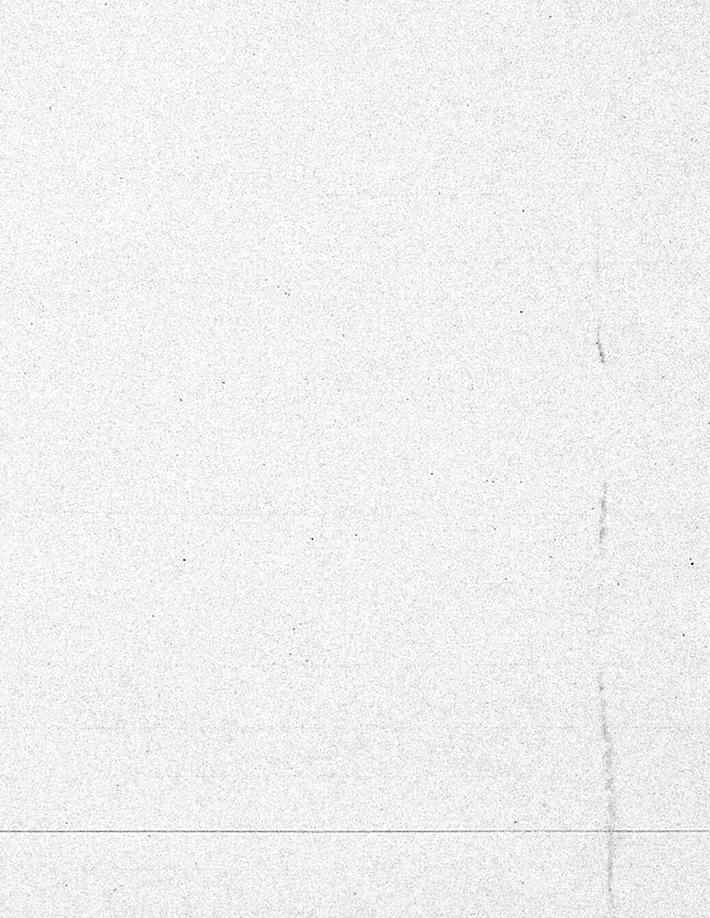

Men’s Circle, Women’s Circle, Breakfast Program, Food Giveaway, Clothing Drive, Firearm Training, Yoga, Meditation.
“This is my first mens circle and it’s really valuable to have a place where Black men can come and be vulnerable and share their feelings and their dreams of a better future and working towards something worth working towards. Excited to continue talking about these things and putting them into action in our communities.”
Monthly/Semi Monthly Men’s Circles, Love Lab (All Gender Healing Circle), Boxing Club, Food Distributions, Breathwork Quarterly:, Health & Wellness Day (including Yoga & Acupuncture).
TESTIMONY: Kenji Summers
“Looking back at the Circle, I appreciate that I noticed the diversity of backgrounds represented among the men there. Places like that are so important because they bring together folks from different walks of life who may not interact otherwise. I also thought the stillness we did before opening up - that time for quiet self-reflection - really added something valuable. It let us think through what we wanted to share instead of just jumping right into talking. Every group has room to grow, but this one prioritizes inclusion in a way that strengthens, not weakens, its purpose of supporting men. All in all, I’d say it’s a valuable resource for people like me transitioning from being all in with the hustle-grind culture and wanting to press “pause” while not falling into the fringes of existential despair.”
Grounding Meditation, Getting on Your Nerves (Yoga), Firearm Safety Training, Stop the Bleed.
TESTIMONY: Jon Michael Richardson
“The men’s circle and the community services (survival programs) have been transformative for me and my community. This is just one aspect toward real lasting change in my community, in our city. Brothers need to heal to stay in the fight.“

Men’s Circle, Women’s Circle, CO-Ed Circle, Boxing, Yoga; Recently partnered with EatWell Exchange.
TESTIMONY: chico
“I have a testimony myself. I started Men’s Circle the Monday after my sister passed, and the Men’s Circle helped me get through it. Just being in a space where other men had just as many problems as me made me feel supported. The Men’s Circle alone made me want to be a part of BMB, and I have been the Miami organizer ever since.”

TESTIMONY: Jamarria Hall programs: programs:
Men’s Circles, Health Fairs, Speed Therapy. Partnered with The Grocery Spot, a free grocery store.
TESTIMONY: Aaron
“I came to the Men’s Circle with my dad and was able to finally express myself about how I feel. I feel safe in the circle and allowed our bond to become fun again”
Men’s Circle, Yoga, Youth Debate, Community Gardening, Stop the Bleed Training.
“Peace, man. My name is Jamarria Hall, and I’m just a youth trying to be part of the Struggle of Liberation. It’s challenging to be with other Black men in the Circle, understanding how it is a struggle to be a Black man, not only in America but in the world, right?”
Men’s Circle, Sister Circle, Gun Range, Weekly Food Drives, Hot Meals Daily with Church, Community Clean 2-3 Times a Month.

“These Men’s Circles are like therapy for me.”
Men’s Circles, Nature Outings, Monthly Street Sweeps, Mutual Aid Events, Yoga, Samoan Circles; Partnership with Plant the Power promoting healthy eating.
“My name is Carter Robinson, 19, from Columbus, OH. In my one official year of being in BMB, I have grown passionate about the organization as a whole and love my Hub and the leaders in it. I’ve gotten the chance to see the ups and downs of my Hub and have personal connections with all the Hub leaders who were already making noise in the community before they joined BMB and started the Columbus Hub, which gets the best visitors from all over the nation. I’ve been able to join Warrior Circles, community clean-ups, and Hub planning meetings and have fallen in love with the process of changing the lives of more Black men in my city and statewide. It also gives me something to fall back on, knowing the same effort I’m putting into changing my city is being done as well in cities all across the country. Every Black man should have the chance to be heard in a Warrior Circle, improve his community in a clean-up, experience life-changing wisdom from across the nation, share his passion at BMB events, keep his dollar in the Black network when he needs goods and services, and lastly have the chance to call himself a BMB member.”
Written by Black Men Build
We have a very strong history of self-defense. From the Deacons for Defense and Justice to Robert F. Williams, the Black Panther Party to your auntie who keeps a tiny Glock in her purse for the “knuckleheads,” we believe in protecting our own and looking out for our community, which is why most Black folks carry. But safety isn’t just about being armed; it also encompasses knowing how to save your neighbor’s life, de-escalate a conflict, manage stress, and find peace.
• Healthy eating: This is even more important than exercise.
• Cut smoking and drinking.
• Eliminate all sugary drinks.
• Eat vegetables and fruits.
Being able to access your full range of emotions and understand how to manage each emotion as they come is crucial. This includes loving, laughing, crying, getting angry, fighting, and yelling when necessary. It means understanding emotions—when you’re happy, sad, excited, depressed—and having coping mechanisms. The other side of emotional wellness is recognizing that you cannot always control how you feel, but you can choose how you respond and cope.
• (Event) Someone steps on your shoes. (Emotion/Feeling) You feel disrespected which brings out feelings of irritation and anger. (Action/Behavior) You choose to keep walking or you choose to confront them.

We must strive to grow through what we go through. This doesn’t mean forgetting or just moving on, as that stuff comes out in other ways. A right mind starts with mindfulness, which involves learning to be present and not on autopilot in our daily lives or scrolling social media aimlessly. It’s about becoming aware of who you are, your habits, pitfalls, strengths, and seeking growth. We must stop powering through because “we ain’t no bitch.” The world needs Black men who are vulnerable and willing to engage in healthy communication. Go seek help.
• (Event) You are denied a job that you thought you nailed the interview for. (Emotion/Feeling) You feel sad and depressed. (Action/Behavior) You choose to cry for a little while, then call a friend for inspiration, reorient yourself to your goals, and start applying for more jobs.
Photography by Jade Lilly
• Rest well: “I’ll sleep when I die” is a harmful mindset. If you don’t sleep, you are dying. Get a good amount of sleep every night.
• Breathe: Controlling your breath helps control your mind. Take time to breathe intentionally.
• Have meaningful conversations: Talk with friends, family, or a partner about what you’re going through.
• Seek professional help: Yes, seek professional assistance.
• Consume healthier things: This isn’t just about food. Check what you watch, read, listen to, and be aware of who you’re around. You are what you’re around.
“An organized community is a safe community.” Safety is the responsibility of everyone. We avoid working with the police as much as possible. Historically, we have always had to defend ourselves from local police or federal agencies. Unfortunately, we also have to keep our community safe from ourselves/itself. Community safety is an ongoing process of recognizing and addressing the immediate needs of our community. This doesn’t mean there’s no conflict; we just find better ways to resolve it when it arises.

What grounds you? What’s your code? Where do your morals and values come from? What or who is your higher power? Your spirituality defines these answers and becoming more attuned to it will help make you spiritually well. This is crucial because it disconnects you from the everyday grind and connects you to something higher, which is good for longevity. Signs of spiritual unrest include being unable to forgive, lacking compassion, and not being able to spread love and give back.
• Pray/Meditate: Focus on your spirituality.
• Read and find a spiritual adviser.
• Worship and find groups with similar spiritual beliefs.
An empowered community is self-reliant, skilled in self-defense, and versed in mental, emotional, and spiritual wellness. We keep ourselves safe, not through isolation, but through solidarity and active engagement in wellness practices that foster a strong, unified community ready to face any challenge. This holistic approach ensures that we are equipped to handle both internal and external threats effectively, maintaining our health and safety while cultivating a vibrant and supportive communal environment.

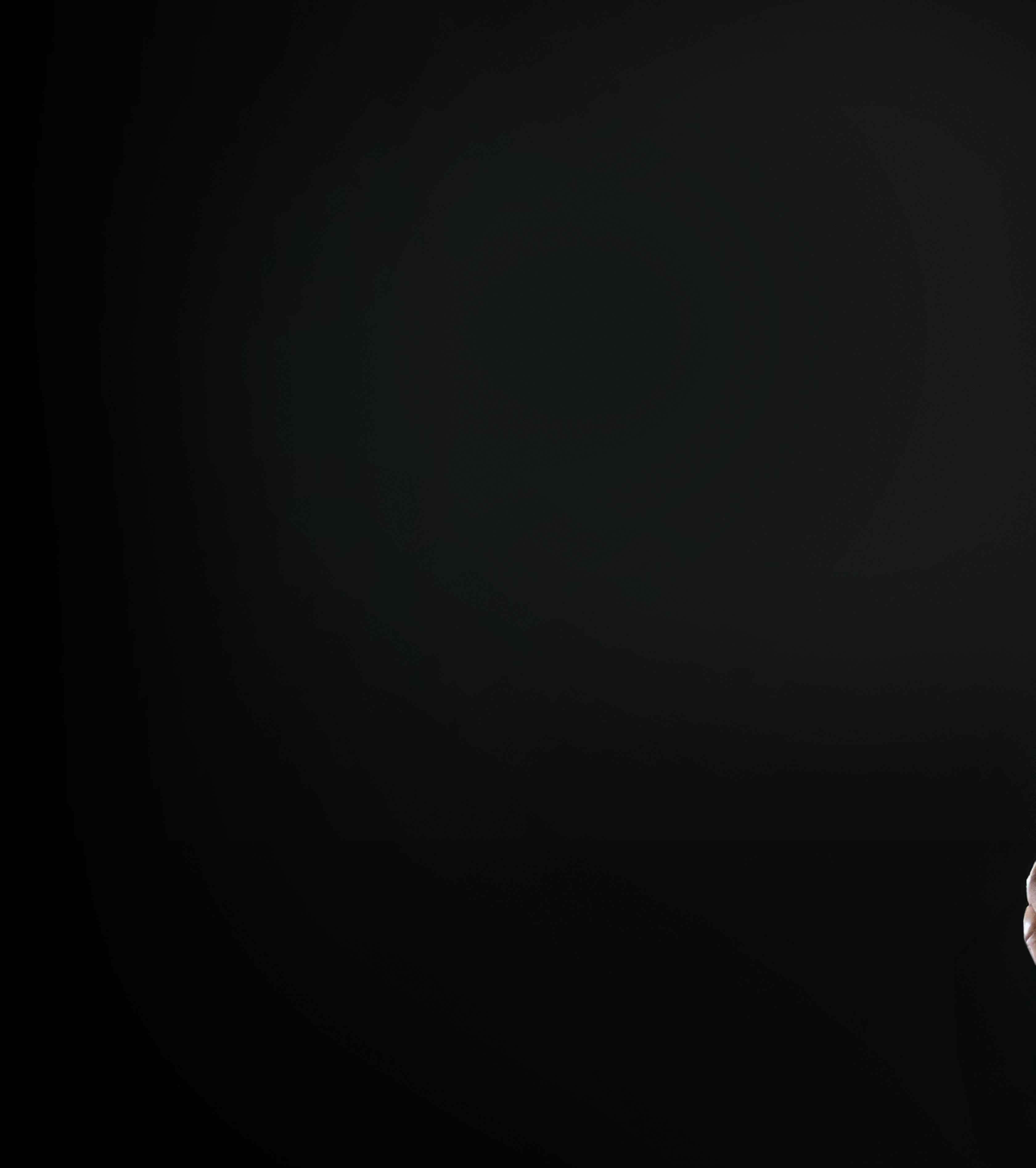

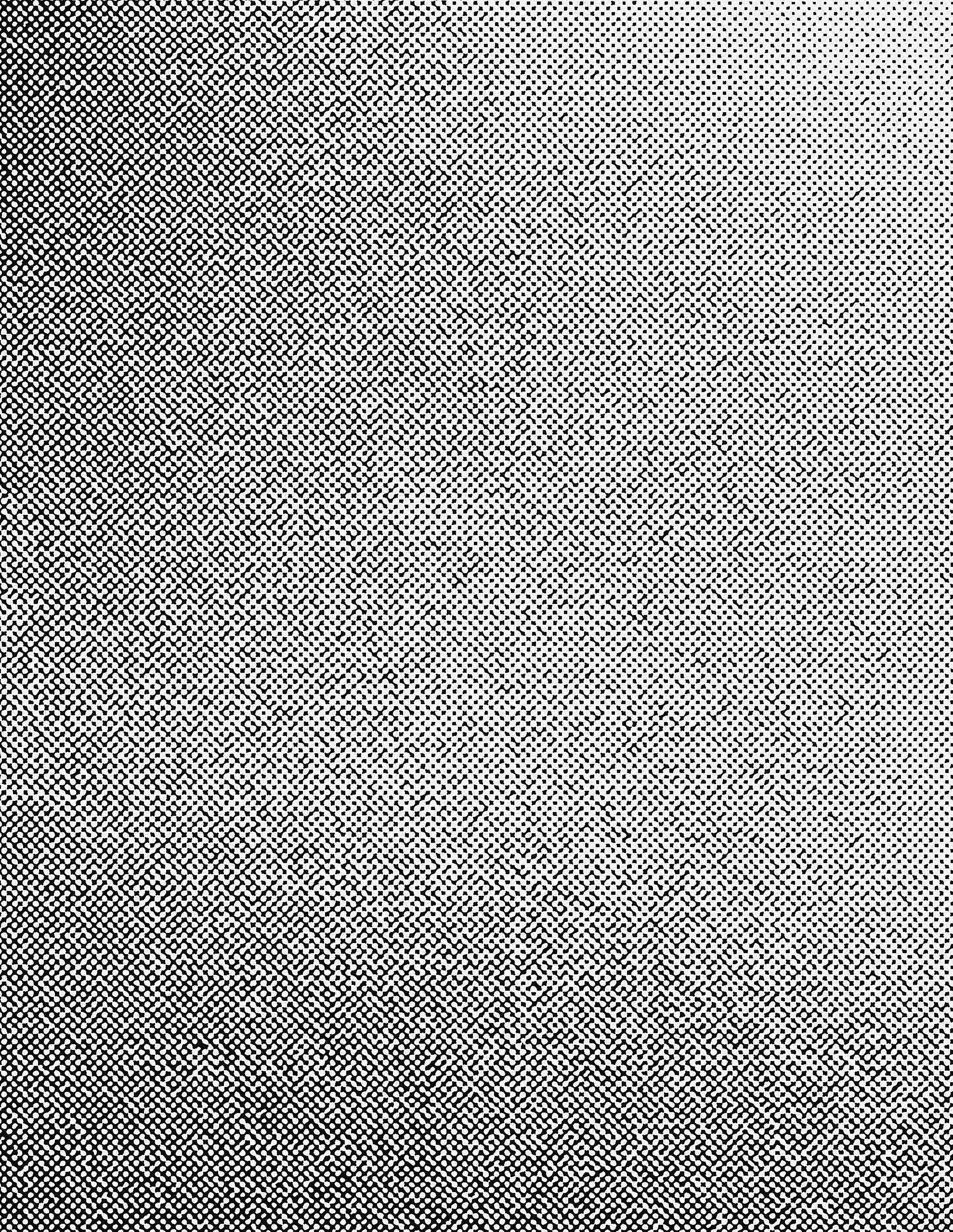


Written By Written by Corey Wright
“Daddy, I’m depressed.” That text message conveyed more than just three words.

These are the moments when fatherhood is called upon at a level we seldom ever reach. I didn’t grow up discussing mental health with my parents. In my childhood, admitting to struggles would lead to condemnation or ridicule. Although we address trauma more openly now, it wasn’t always this way.
Many brothers will relate; the boyz n the hood raised us. My father was present at home, raising seven sons and a daughter, and sometimes I felt invisible. At 17, a guidance counselor told my mother I was suicidal during an anxiety attack in class. Naturally, she panicked, put me in therapy, started me on medication, and told me this was my battle. My mother did the best she could, and that’s all we can ask of our parents. Realistically, we just hope we aren’t messing up. Like our parents, we are doing the best we can. I understand the need for greater accountability these days, but we shouldn’t overburden ourselves. It all starts with recognizing the problem. We have the power to heal. These kids have it tough right now. In these times, our children look to us for guidance because they feel lost, and rightly so. They often turn to influencers and the media, which is invariably risky. Your presence is a gift. Our children know us—they are part of us—and we
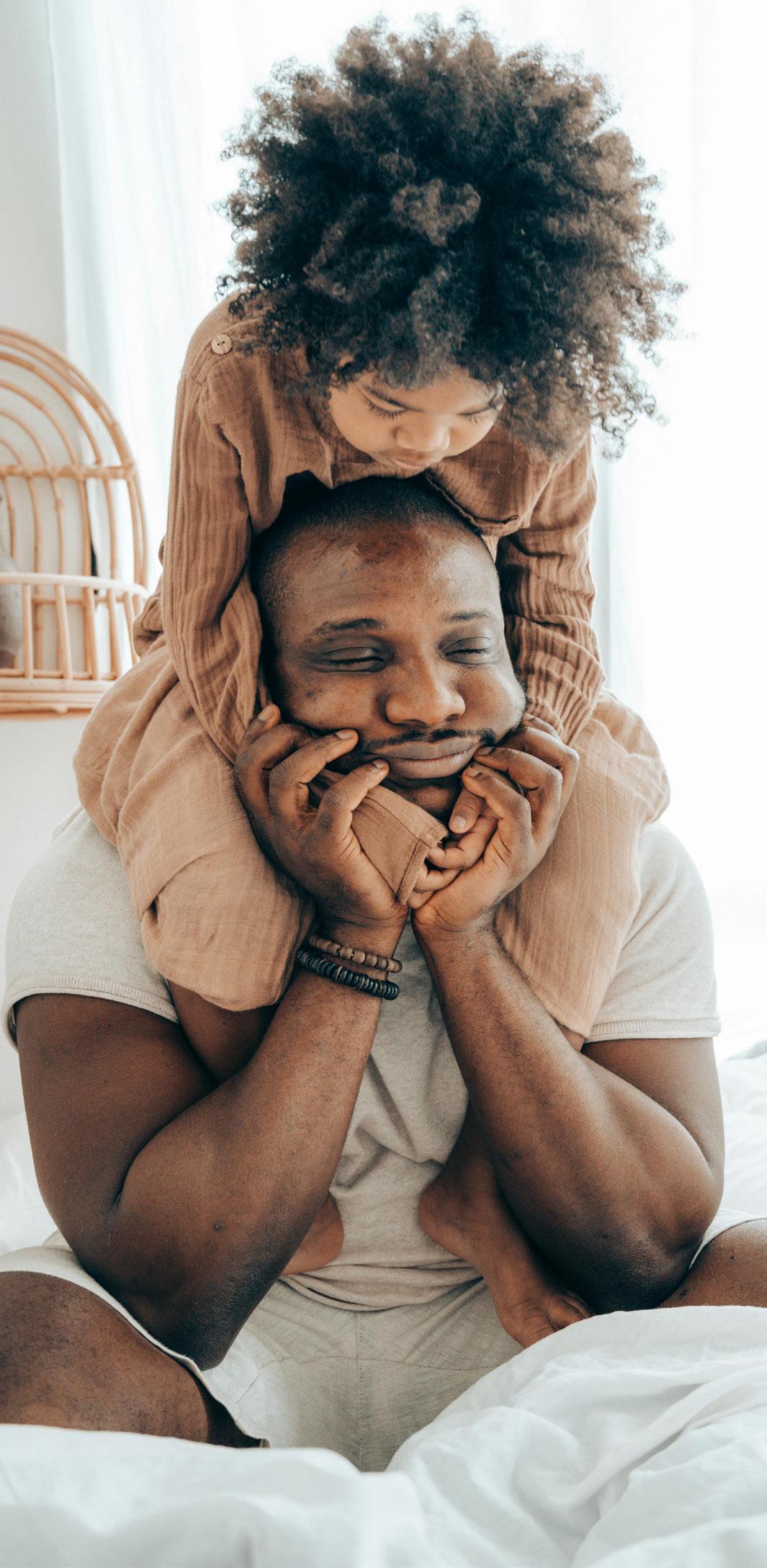
must be there for them when needed. I’m not a licensed therapist, but I know my mother was wise enough to ensure I saw one. This is a form of child support that can’t be quantified in monetary terms. We live in a different era. I communicate with my daughter in ways she can understand, having often felt misunderstood myself. The manner in which the younger generation expresses themselves is shaped by the examples set by our generation. We are the fathers tasked with breaking generational curses because now, “We know better.”
We are fighting the good fight, and it will get tough on the battlefield at times, but we must keep pushing. Take your time with yourself and be patient with your children. They experience stress just as we do. We must remember that the lives we build for them are the legacies we leave behind. As the saying goes, “Any fool with a dick can make a baby, but it takes a man to raise a child.” Salute to all the brothers putting in the work.
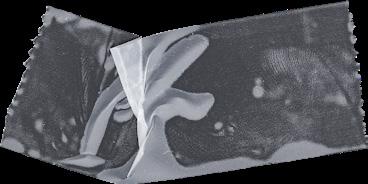
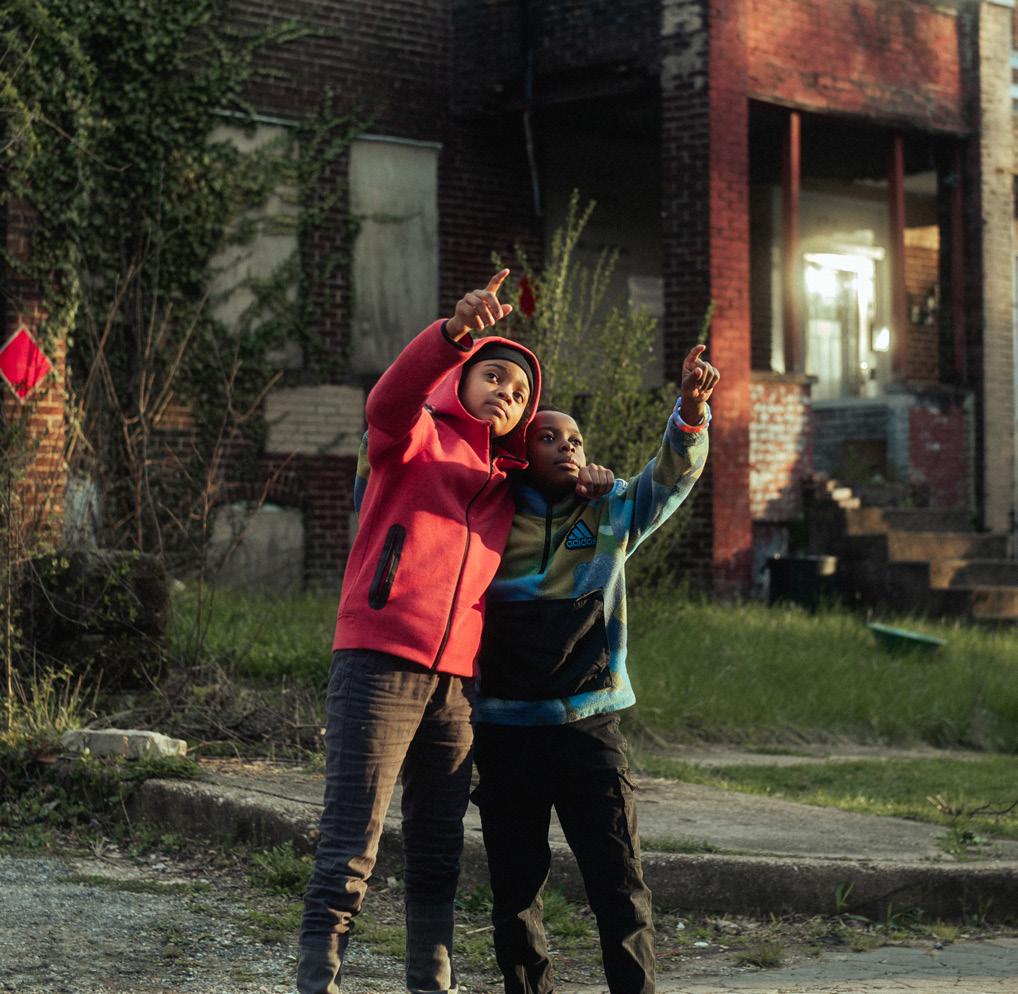

excerpt from The 5 Principles Written by
Stic.Man of Dead Prez


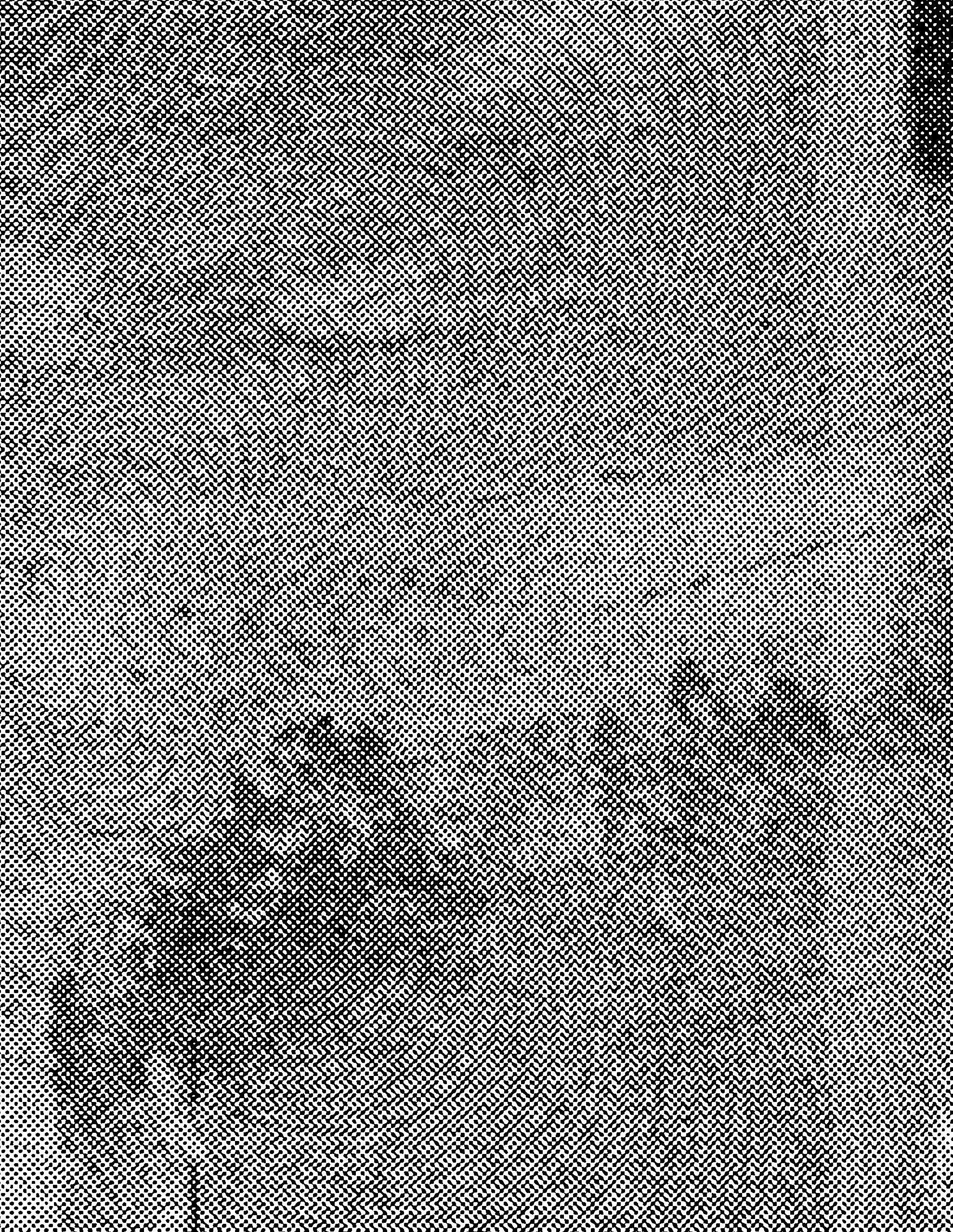




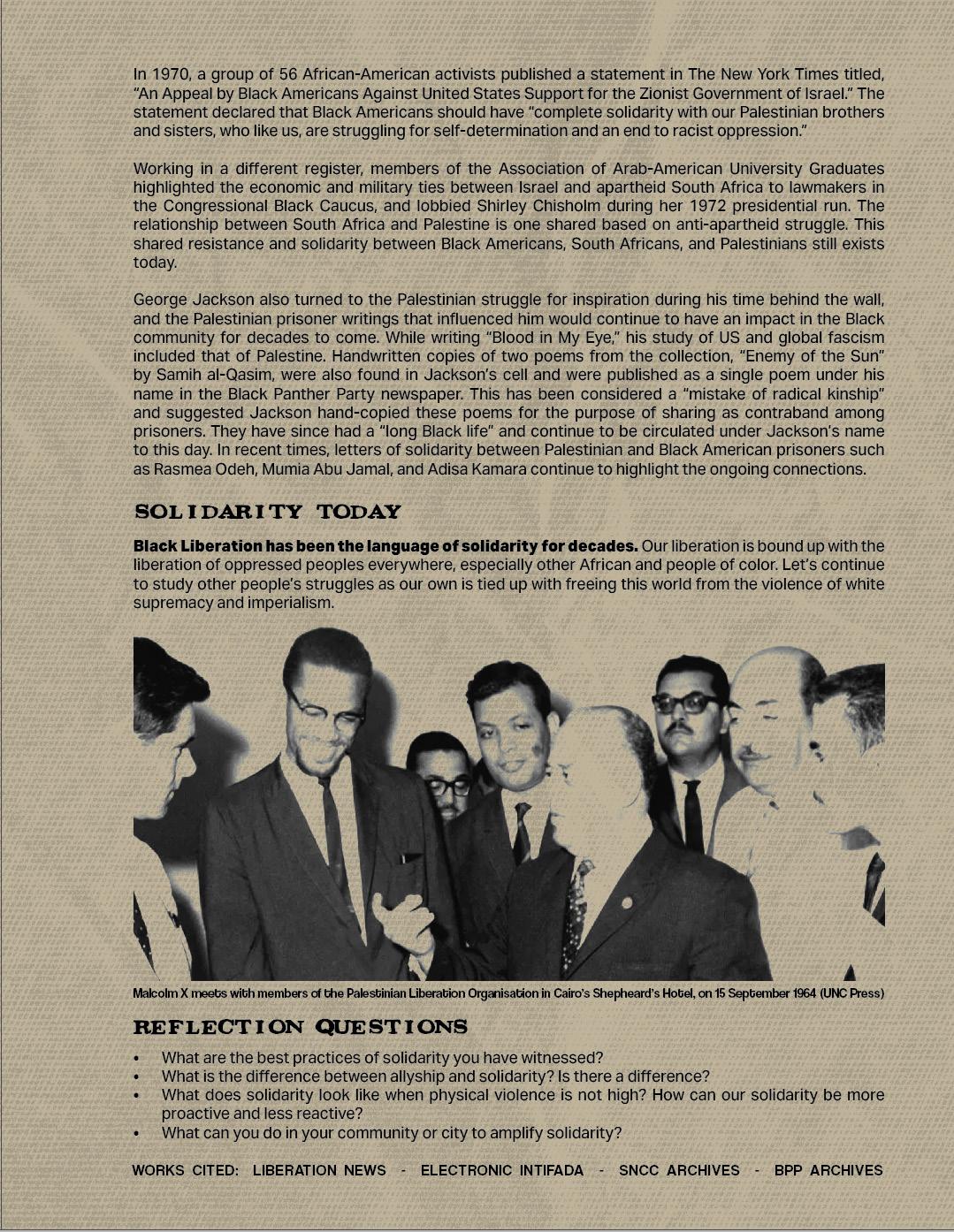
WRITTEN BY NINO BROWN
“When you look at it as just being Congo, you’ll have to admit that the people in the Congo, the Africans there, are doing the same thing you and I have to do here in America. The Africans in the Congo are being oppressed by the same white man, the same white man in Washington, D.C., the same white man in London, the same white man in Paris. They’re being oppressed by the same white man that’s giving you a hard time right here in America. So what you and I have to do is learn to forget our differences.”
In the crucible of contemporary struggle for Black liberation, the African diaspora emerges as a beacon of collective struggle and resilience, transcending artificial borders and complex histories. Scattered across the globe in the “capitals of global capitalism,” we, as Afro-descendant peoples, are positioned as pivotal agents of revolutionary transformation, dismantling systems of superexploitation and national oppression. As “our Black shining prince” Malcolm X reminded us, whether we find ourselves in Africa, London, Paris, or Chicago, we face a common enemy
in Western imperialism, our interests tightly intertwined despite the vastness of our dispersion.
Born from the violent throes of European colonization of Africa, modern capitalism fragmented countless African communities. Yet, it is precisely within these fractures that resistance germinates, for capitalism unwittingly sows the seeds of its own demise For centuries, African Americans have longed for a return to Africa, a homeland where ancestral ties defy the erasure of colonialism. This yearning, manifested from Marcus Garvey’s Universal
Negro Improvement Association to W.E.B. Du Bois and the establishment of Pan-African Congresses, underscores the profound interconnectedness of the African diaspora—a tapestry woven from struggle, resilience, and collective identity, urging us to dismantle the colonial narratives that still shape our journey toward liberation.
Welcome to ‘Dispatches from the Diaspora’ within the pages of ‘Wartime,’ where we delve into the struggles of Africans both at home and abroad, marching steadfastly towards our liberation.
Mainstream narratives often strip African struggles of their context, presenting them as spontaneous or isolated incidents. The deaths and oppressions of Africans are routinely ignored or sensationalized, contributing to a cycle of erasure and distortion. Yet, beneath this facade of indifference lies a profound shared struggle—a struggle rooted in common class interests that binds African Americans to their kin in Haiti, Congo, Sudan, and beyond. Each narrative of resistance not only reflects our own but also strengthens the bonds that unite us against a common oppressor.
The burgeoning ‘Free Palestine’ movement serves as a poignant reminder of the interconnectedness of global liberation struggles. It exposes the true face of the Global North, paving the way for a broader movement that encompasses the liberation of Africa and beyond. Recognizing the international struggle of Africans in the diaspora and pursuing liberation from all forms of colonialism allows us to forge bonds that transcend borders and resonate with our shared interests.
Niger’s recent cancellation of its military agreement with the United States marks a significant pivot in Washington’s strategic interests in North and West Africa. In July 2023, the National Council for the Safeguard of the Homeland, a body that emerged following a coup, ousted the pro-Western puppet regime and immediately revoked the military agreement, citing coercion from Western powers and aligning more closely with Russia and China. This bold move underscores a larger shift in geopolitical dynamics where the U.S. faces the prospect of losing three military bases, including a major drone facility in Agadez, and its strategic foothold in the Sahel region. Despite efforts to salvage some military presence, Niger’s decision is one of self determination, representing a significant reclamation of sovereignty and an end to neo colonialism.
Sudan’s current crisis, though often ignored by the international community, is rooted deeply in a history of Western exploitation and manipulation over the course of many years. The conflict, which escalated significantly in 2022, has resulted in thousands of deaths and widespread displacement. This turmoil stems from economic hardships exacerbated by the International Monetary Fund’s (IMF) in 2011, imposed austerity measures, and geopolitical interests that have armed and financed local militias. Despite these challenges, Sudanese grassroots movements continue to resist external pressures, striving for authentic self-determination. As complex as all this is, genuine solidarity requires understanding Sudan’s history and amplifying its struggles to challenge oppressive systems and effect meaningful change.
Recent political shifts in Senegal and the formation of the Alliance of Sahel States by Burkina Faso, Mali, and Niger illustrate a growing resistance against neo colonial influence. These movements are not only about political change, but also represent a deeper desire for economic and cultural renaissance free from Western interference. The rise of leaders like Bassirou Diomaye Faye in Senegal embodies this new wave of pan-African leadership aiming to forge a future defined on the region’s own terms.
The recent developments across the Sahel and the broader West African region underscore a significant awakening towards selfdetermination and pan-African unity. As we witness these nations challenge the remnants of colonial influence, they pave the way for a new era of sovereignty and genuine independence.
As we reflect on these dispatches, let us recommit to the revolutionary struggle for a truly liberated Africa and a world free from the shackles of colonial rule. Today, as we face renewed imperialist threats, our solidarity and commitment to the cause of liberation remain as vital as ever.
The path ahead is fraught with challenges, but, united in our resolve and inspired by our history, we stand ready to confront them— striving for a just world where freedom and equality are not just ideals but realities for all Africans and oppressed peoples worldwide.
For years, Haiti has grappled with political instability, economic hardship, and social unrest, exacerbated by a lack of legitimate governance. The resignation of Ariel Henry in April 2023 marked yet another chapter in Haiti’s long history of foreign intervention, falsely framed as efforts to stabilize the nation. Instead of genuine support, international actors, primarily the U.S., have pushed for governance structures that continue to undermine Haitian sovereignty. Haiti’s insecurity lies in the deliberate policies of external actors that have weakened the state and fostered the rise of armed groups.The narrative of “gang violence” serves as a pretext for intervention, echoing historical justifications for imperialist incursions. Yet, the proposed solution of a puppet council, handpicked by foreign powers, only perpetuates Haiti’s dependency and undermines its sovereignty.This ongoing meddling has only perpetuated
The ongoing struggle in the Democratic Republic of Congo (DRC) is deeply rooted in its tumultuous history, particularly the CIA-backed overthrow of Patrice Lumumba in 1961. The struggle in the Democratic Republic of Congo is emblematic of the broader battles against colonial legacies and neo-colonial exploitation, especially around its vast mineral wealth. Despite being endowed with vast natural resources, including cobalt, coltan, copper, diamonds, gold, lithium, tungsten, and manganese, the DRC remains one of the poorest countries globally because of Western powers and companies like Tesla. Since 1996, six million Africans in the Congo and the surrounding region have died. This is a number hard to truly understand. This complex history requires nuanced understanding and solidarity to support Congolese efforts towards genuine autonomy and development.
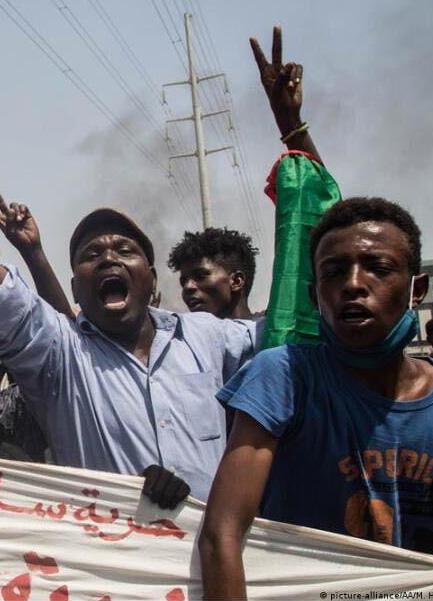
Written by Maurice Mitchell
“Ain't No Lesser of Two
As we stride into the voting booths this November, the choices may seem painfully familiar. Despite our loud demands for a multi-party system, come November, the battle lines will once again be drawn starkly between the top Democrat and Republican candidates (and yes, third party candidates). It’s a showdown between re-electing Joe Biden or handing the reins back to Donald Trump.
For those among us who yearn for a different name on the ballot or Texas voters eyeing a shot at ‘Literally Anybody Else’, this is the sad reality we face.
In the coming months, mainstream chatter will fixate on which candidate would be a better beer buddy. Frankly, neither hits the mark. But beneath this casual banter lies a deeper narrative: voting is not just an individual act of preference but a collective strategy for progress. Our votes aren’t about personal affection; they’re tactical moves in a larger battle for our community’s future.
Forget falling in love with politicians; that’s what dating apps are for. Our politics shouldn’t be a Valentine; it should be a chess move. And if Black people want to win the governing game, we have to start acting like it. In other words, no permanent friends, only permanent collective interests. We must pivot our mindset from seeking friends to strategically securing allies rooted in our collective Black agenda.
Consider the political landscape as a chessboard. Whether it’s Trump or Biden leading the charge, they are just single pieces in play. The real game involves their advisors, legislative bodies, and local governments.
If Trump regains office, armed with his “Project 2025” blueprint, expect rollbacks on policies that support working-class Black communities like us and our families— from nixing student debt relief to slashing Medicaid. His 2017 tax cuts might line the pockets of the wealthy Black elite, but at what cost to the rest of us? Republicans will also attempt to limit or reverse the biggest investment in manufacturing jobs in a generation which is focused on renewable energy. These jobs are finally getting to our communities and in some instances turning the tide for towns that have been ignored by the political class for decades.
And it’s not just economic policies at stake. The battleground extends to personal freedoms—from reproductive rights to privacy. Although abortion is framed as a women’s issue, we know that every abortion story includes both sperm and egg so this is absolutely an issue Black men have an interest in. With childcare as expensive as it is, family planning is an economic issue for all of us. Trump and the Republicans want to take those decisions out of your hands.
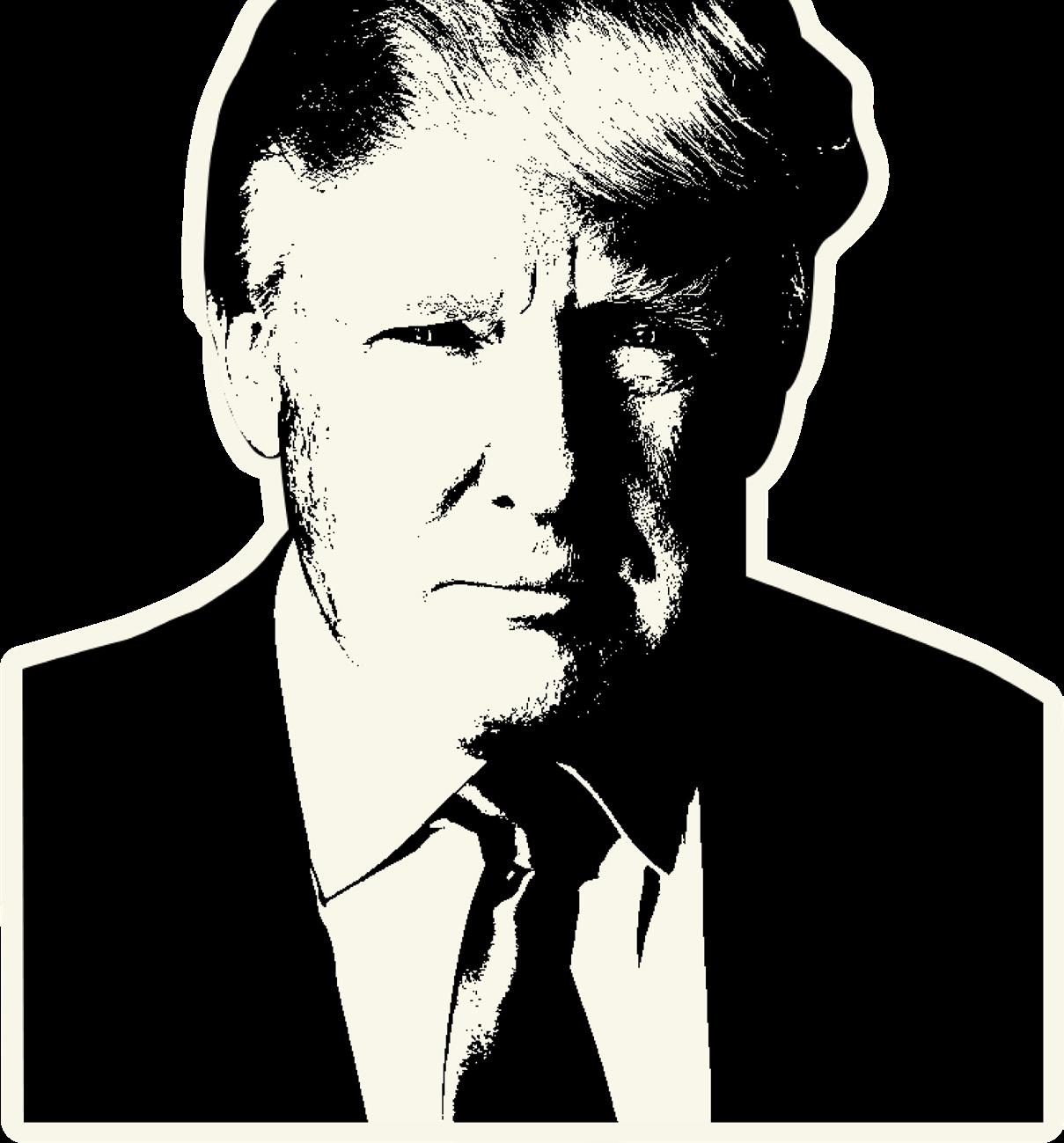
Movement leaders pushed Biden to make big investments in infrastructure and good jobs using clean energy. Groups like the Debt Collective moved President Biden to cancel more than $150 billion in student debt. Though The Supreme Court represents a height of anti-democracy and legal oppression, judicial appointments like Katanji Brown Jackson signal responsive moves influenced by collective advocacy.
Let’s not forget Biden’s 1994 crime bill legacy. He’s no savior; he is not nor will he ever be our champion. But, after comparing four years under both Presidents, I’m more convinced we can leverage our power to win concessions from him than we can from Trump.
To that end, we must also elect as many members of Congress committed to our agenda as we can–vital for confirming judges that won’t take a
It’s not just abortion–they want a say over more and more of your most personal decisions, including a flirtation with banning contraception, outlawing IVF (which helps families that are having trouble having children), gaining the authority to look down your children’s pants to check their genitals, and determining your access – as an adult – to pornography.
On the flip side, Joe Biden is not the next generation leader we seek, but his track record shows a capacity to respond when we apply organized pressure.
hatchet to our rights – and state legislators that won’t stonewall or hijack federal investments from reaching our people. To accomplish any of that, we must organize in large numbers under an independent Black political agenda.
As Election Day looms, remember, the fight isn’t just about who claims the White House but about mobilizing for an independent Black political agenda that transcends presidential terms.
When you step into that booth, think strategically. Voting is our tool for installing leaders who align with our collective needs—not just those who appeal to us individually. Malcolm X said it best, the power is in your hands, and it’s time to wield it wisely.
Vote with the vision of advancing our agenda, for the real protagonists of this story aren’t the candidates, but us—the relentless architects of our fate.
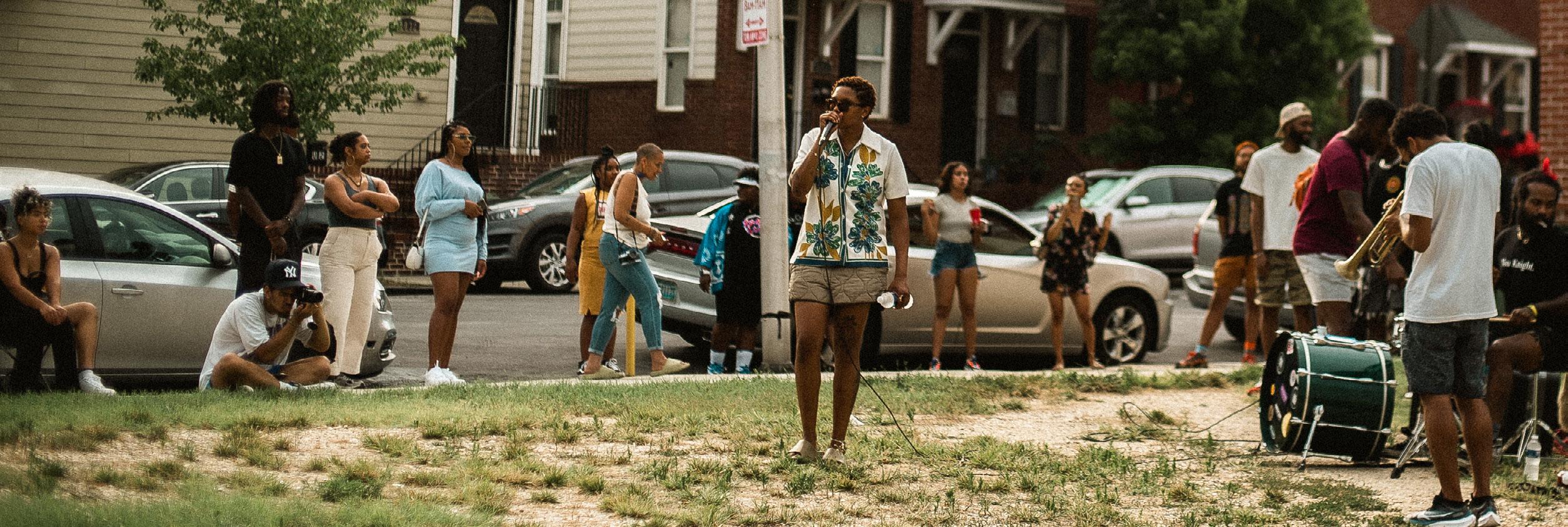
We live in a complex society where information about seizing power is often least available to the masses of Black people. A prime example is the scarcity of accessible information on how to effectively participate in local politics. While daily discussions on national politics flood our timelines, conversations about local politics are notably sparse, despite a robust history of Black people seizing local government to attain power following the Voting Rights Act of 1965.
The work of gaining influence in local politics is straightforward but requires consistent organizing, vigilance over key local political entities, and a track record of community service. If you aim to improve public education, challenge mass incarceration, stop police brutality, reverse gentrification, or address other critical issues facing Black communities, it requires engaging with local politics. Focusing solely on national political advocacy while neglecting local politics undermines the potential to impact the quality of life for Black people. Furthermore, local politics offers more opportunities to directly influence the community. We have greater access to state and local officials and running our own people for office, thus increasing the capacity to exert pressure compared to national figures.
Some local governments feature strong executives (mayors or county executives) that can render legislatures (city or county councils) relatively powerless. Others may centralize budgetary power within the executive branch, or employ a city administrator to manage city agency operations. Often, control over school districts or prisons may be relinquished to the state. Understanding the local government structure ensures that advocacy efforts target the appropriate entities.
Local elected officials carefully manage their time, preferring to engage with groups that can influence their re-election prospects. Expect them to be present where there are votes and financial support. Often, influential community groups or individuals may not be explicitly political but serve as vital forums for political dialogue. This includes neighborhood associations, local charities, sites of sports activities, and business associations. Immersing yourself in these spaces can build the credibility needed to influence local policy. Additionally, identifying organizations that represent the civic interests of local business can be crucial, as they often drive policies that affect Black communities.
Building a base is arguably the most challenging aspect of gaining power in local politics. This should primarily involve community service and building a track record of tangible achievements that benefit the community. In local politics, people prioritize having their basic needs met over ideological alignment. Actions speak louder than words. Consistent volunteering in community clean-ups, after-school programs, or support for the elderly builds a reputation that enhances political advocacy. Demonstrating real results in improving the community can significantly bolster your credibility.
Public relations are vital to elected officials who are acutely aware of their media representation and its potential impact on election outcomes. Effectively utilizing the media can exert substantial pressure on officials to support your agenda.
These strategies provide a solid foundation for building local political influence, which is essential for advocating policies that directly improve the lives of Black people. While national advocacy remains important, its effectiveness is significantly enhanced by robust participation in local politics, where decisions that directly affect your life are made.

Movement leaders pushed vestments in infrastructure clean energy. Groups moved President Biden billion in student debt. Court represents a height legal oppression, judicial tanji Brown Jackson signal fluenced by collective
In April of 2024, Ekundayo, Black Men Build’s Director of Political Education & Culture, interviewed Claudia De la Cruz with the Party of Socialism and Liberation, and of The People’s Forum. They touched on personal interests including reading materials by revolutionaries and artists like Diego Rivera and Elizabeth Catlett, as well as a mutual appreciation for nineties hip-hop and contemporary artists such as Megan Thee Stallion.
Let’s not forget Biden’s 1994 no savior; he is not nor pion. But, after comparing Presidents, I’m more convinced our power to win concessions can from
The interview emphasized social justice issues, revolutionary literature, and community care strategies. They delved into socialism’s significance for Black communities and its historical impact, highlighting activism for free education, environmental protection, and ending wars domestically and abroad.
To that end, we must also of Congress committed vital for confirming judges
Ekundayo:
What are the ways that you care for yourself and the ways people have cared for you? And then, thirdly, as a part of this question, what are the ways Black people care for each other? So, the ways you witness it, the ways you receive it, and the ways you care for yourself.
Claudia:
I mean, I think I’m going to start with the last one and then get to me because I think that the ways in which Black people or communities care for each other is how I’ve learned to care for myself and how I’ve learned about care in relation to other people. So, I grew up in a community where my grandmother kept her door open in the nineties in the Bronx, but she also cooked big pots of meals, like big pots of rice, big pots of beans, because there was always a sense that somebody’s gonna come, and they’re gonna be hungry. So, the sense of communal living was very much ingrained in me from a very young age.
The sense of caring for other people, be it through feeding people, listening to people, advising, teaching—there was always some
element of giving of yourself, not as a sacrifice, but as something you do and something that is helpful also for your own growth and development as a person. That’s the way in which I see our communities care for each other—Black communities, immigrant communities. My mom was an educator for over 30 years. One of the things that she did, because we were bilingual, was make sure that myself and my older brother were lent to our neighbors who needed to go to the Social Security office or any other governmental office that required some translation. Here we were, seven, eight, nine years old, translating for these older ladies. It also gave us a window into the cruelty of the government, where you have either too little to be given assistance or too much to be given assistance, but you are in poverty either way. These are the ways our people care for each other. There was an organic childcare system that took place in the building where families didn’t necessarily have to pay each other with cash but with knowing that they had each other’s back. One day it was your turn to take care of the kids or pick them up, and then the next time was theirs. Maybe payback would mean having their whole family for dinner one night, sparing them the task of cooking. These are the many ways that
we care for each other. This is how I learned about community organizing, even before I realized that’s what was happening very much organically in my community.
For me, self-care is funny because there’s a whole industry of self-care that tells you that the only way you can actually care for yourself is by getting a pedicure, a manicure, and a massage. A lot of our people don’t have access to that, and those who do often find it doesn’t provide substantial healing. What I understood care to be was in community. It was never in isolation. In fact, isolation or alienation for me is abnormal because I grew up in such a communal living space. When I grew up and had to leave my nest, my house, and found that people don’t live like that, it was the biggest cultural shock imaginable. People had to figure it out on their own. Talking about their problems was a shame, and talking about their lack of access to things was shameful because it automatically meant they were deficient in some way.
So, my understanding of self-care has always been in community with other people. It is the organizing, the educating, the building of organizations. It is participating in culture
pushed Biden to make big in infrastructure and good jobs using like the Debt Collective to cancel more than $150 debt. Though The Supreme height of anti-democracy and judicial appointments like Ka signal responsive moves in collective advocacy.
1994 crime bill legacy. He’s will he ever be our chamcomparing four years under both convinced we can leverage concessions from him than we from Trump.

also elect as many members to our agenda as we can–judges that won’t take a
and building new culture. All of these things give me life because I think care is about life-giving projects. Being a mom is definitely something that I appreciate, as challenging and exhausting as it is. At the same time, there are many moments of learning, teaching, and facilitating understanding. In that relationship, I find a lot of care and love. I have been tasked and given the opportunity to facilitate a process of life with a boy, a son, born to a Caribbean mom who identifies as a Black Caribbean woman. He also identifies as a Black boy and is living in a world that is racist, violent towards Black boys and men, and very oppressive.
My understanding of what I’m here to facil itate is his sense of self, that there is value in who he is and in the lineage of Black men who came before him. This level of task and facilitation of care has humanized me and deconstructed many things that have been violently imposed on Black men by society, such as the concept of masculinity. Being able to include him in the communities where I am active in movement work, in marching, and organizing spaces, and having him see women in leadership and men who respect that has been very helpful. He’s able to understand that we can hold spiritual and leadership roles together, and it’s not about one being more dominant than the other, but about both coming into a space with all our elements and contradictions and still moving things forward.
It’s been really key to have him there to participate, ask questions, and find himself in the duality of being tender, loving, strong, and holding emotions like sadness, frustration, and love. He’s able to express and man-
age these emotions, which is important because Black men and Brown men have often been robbed of this possibility. For me, it’s very important that he has a space to do that because society doesn’t allow Black boys and Brown boys to grow up to be men who can feel all sorts of emotions and still move forward. Sometimes that turns into violence, and we don’t want to contribute that kind of human being into the world.
Ekundayo:
But even beyond that, just being in our community with our people, not being the perpetrators of violence, parental violence, patriarchal violence, or violence against each other because of the lack of balance between our masculine and feminine energy and practice. The weight of the world and the narratives and public discourse control how we believe we should be. I think it’s beautiful that your son can be tender, kind, and strong. Without tenderness, empathy, and that peace, strength is just an illusion. This is how to keep your spirit clean. I’m grateful that your son is getting that same modeling from you and the village.
How is the Party for Socialism and Liberation (PSL) addressing the healing needs for Black men, for our communities as a whole?
Claudia:
I mean, one of the things I was looking at on social media was someone reposting a video of Malcolm X talking about, you know, if somebody stabs you in the back and it’s six inches in and then just pulls it back three inches, it doesn’t necessarily mean that progress is being made. In order for you to heal, you have to restore completely. I feel like the
question of healing, all the things that we’re talking about that are very personal, have a lot of repercussions in the way we relate to other people and are part of the structures and systems we emerge from.
Patriarchy is not something that lives or exists in a vacuum. It’s very much connected to the economic and political system in which we live, which is capitalism. It’s necessary for capitalism to have patriarchy and a certain ranking of human beings based on their value to the system. If you’re a woman, Black, poor, immigrant, you’re considered of less value. If you’re a Black man compared to a white man, you’re of lesser value. These rankings are generated by capitalism to benefit those who make a profit from them. When we talk about healing, we need to speak about the structures and systems that make us ill. There’s no such thing as healing if you don’t accept what makes you ill. From our perspective, the biggest illness humanity has experienced is the capitalist system. We can trace this back to the enslavement of our people who were brought to this land to create what we now understand as U.S. imperialism.
In order to provide healing that is rooted in becoming well, we need to follow the example of indigenous people throughout this continent. They talk about “Buen Vivir,” living well. That’s what we want—living well in a holistic form, not just being able to purchase things, which the system tells us is wellness. Wellness is not consumption. Living well means having access to basic needs without worry, having health, employment security, housing security—things that concern us and make us ill in this society.
If you think about the levels of homelessness connected to mental health issues, we have over 500,000 homeless people in this country and millions who are house insecure. This creates a feeling of insanity. How is it that I cannot achieve these goals? Something must be wrong with me. But the reality is that there are 330 million people in this country, and 160 million are living close to or in poverty. It’s a collective problem, not an individual’s deficiency.
Our platform provides an analysis of our current condition, saying we need to take back the wealth that has been stolen from us. Why does Jeff Bezos make $7.9 million an hour in 2023 and fail to negotiate with Amazon workers for $15 an hour? During the COVID peak, he bought a spaceship while his workers were losing life and limb in warehouses, producing the wealth he used to buy spaceships. This creates insecurity. Without job benefits, it’s difficult to have health care. We need to take the profit motive out of these experiences. What if you could access health care without health insurance? What if everyone, employed or not, had health care?
T hat would eliminate the stress of so many individuals and families who have high levels of debt because they are trying to access a basic need. What if housing was a human right and no one lived in the streets? We have the capacity to do that. There’s enough capital in this country, and many empty buildings accumulating profit for someone who shouldn’t have that level of power.
We need to eliminate the social, economic, and political ills driving our people crazy. It’s not a dismissive or demeaning statement; it’s a fact. It makes you feel insane and creates isolation and guilt for one’s inability to provide. This is a systemic issue, not a personal deficiency. Our campaign and party strive to do political organization and education every day, not just during elections. We advocate for ending the war on Black America, mass incarceration, and the war on drugs. These policies target our communities because they are poor and Black or Brown, making them disposable to the system.
We say end mass incarceration. There’s no reason private corporations should profit from modern-day slavery. End the war on drugs because it was never about drugs. Addiction should be treated as a health condition. Selling drugs is an issue of employment
and creating opportunities that don’t drive people to crimes of poverty. Socialism provides solutions, not capitalism, which created these problems.
Ekundayo:
I think about how this country’s policies, governance, and ideology are sick. Brothers don’t go to the doctor, never get checkups, and the way insurance is set up, you pay out of pocket, limiting proactive health measures. The conditions we live in cause sickness. Food apartheid means many neighborhoods don’t have fresh produce or access to it.
Claudia:
Exactly. In the South Bronx, where I’m from, we have food markets that supply the city, but we live in a food desert. We don’t have access to that food. We are the last stop. Many communities experience this—they supply labor, food, and resources but don’t benefit from them.
Another aspect of this sick society is how our people have been subjects of experiments for science, creating valid distrust. Look at the Tuskegee experiments or the experiments on Puerto Rican women that caused infertility. Why would you trust medicine if it’s been weaponized against you? Why trust the education system if it’s been used as a weapon? Anything in the wrong hands can be a weapon, and they hold everything— medicine, education, and necessary structures for society.
We’ve built parallel systems and ways to survive. You always have a grandma or an auntie who played the community doctor or therapist. You trusted them more than anyone with a degree because the system consistently failed our people. This segregation notion that some people are experiments and some are human is the society we live in.
Ekundayo:
What are you reading and listening to these days?
Claudia:
I’m a nerd, and I like being a nerd. The Trinity of Fundamentals. It’s amazing because it speaks to the humanity of freedom fighters, the choices they make, and the importance of political organization. It’s about a Pales-
tinian freedom fighter who went underground for nine years, leading another life. It’s a marvelous book for anyone engaged in struggle.
Tip of the Spear is another book I’ve read twice. It starts with Queen Mother Moore and discusses how prisons are labs, and those inside resist in ways not often seen. It should be required reading for everyone. It highlights the consciousness of those organizing inside prisons and the need to politicize social and economic prisoners.
Ekundayo:
Tip of the Spear has been circulating in BMB since it came out. For Black August, we’ll use it along with Blood in My Eye by George Jackson. We have a deep connection with prison organizing, abolition, and revolutionaries behind the wall.
What is your anthology for the revolution? Revolutionaries, artists, scholars for the revolution?
Claudia:
I love Amilcar Cabral, Thomas Sankara, Maurice Bishop, and Castro. Alexandra Kollontai’s writings on women, relationships, and sexuality from a Marxist perspective are also great. Che Guevara’s speeches to the youth are key. Gabriel Garcia Marquez’s 100 Years of Solitude is a fantastic novel. I love murals, especially the Chilean muralist tradition. Elizabeth Catlett is amazing. She was a communist, a popular educator, and an artist who moved to Mexico and joined the Mexican Communist Party.
Ekundayo:
BMB is not politically identified as socialist, though we have many in our organization and leadership who are. For our readers, what is socialism? What does it mean for Black people and Black nations, both historically and contemporarily?
Claudia:
That’s a big question, but it’s important to acknowledge that socialism wasn’t born yesterday. Socialism has always been here as the opposite of capitalism and a solution to its problems. There’s a long tradition of Black communists who fought and died for socialism. Many social movements’ wins can be attributed to socialists, even though Democrats often hijack these wins.
Labor movements, housing rights, and other basic rights came from struggles involving communists and socialists, including Black ones, in the 1930s. Socialism and communism have been painted as the boogeyman, but capitalism is the real enemy. Capitalism, not socialism, has harmed our communities, killed Black boys, built cop cities, and profited from mass incarceration. We need to challenge these narratives.
Capitalism has waged war on Black people from its beginning, including slavery, which is a down payment for the capitalist system. There was an era, the McCarthy era, where Black communists were imprisoned or exiled. People like Paul Robeson, Claudia Jones, and W. E. B. Du Bois. Even Martin Luther King moved towards socialism towards the end of his life, and many legends of the Black radical tradition were aligned with socialist ideology.
The crackdown on political organizations was because they posed a threat to the U.S. When Martin Luther King started talking about the Poor People’s Campaign in 1968, bringing together the poorest to build encampments in D.C., that’s when he was shot. Fred Hampton’s organizing of the original Rainbow Coalition also posed a threat.
It’s not socialism that is opening up, you know, dozens of cop cities all across this country. It is not socialism that has surveilled our political organizations, like the Black Panther Party or the Young Lords, and has infiltrated them and has broken them down. It is not socialism that benefits from mass incarceration in this country. And so I would challenge anyone on those lines. Capitalism is the enemy. Capitalism is the one that has harmed our communities. It is the one that has waged war against Black people, including slavery, because slavery is a down payment for the capitalist system in which we live today. And so we need to understand that.
Race has been weaponized to divide us, but the real issue is economic power. Obama wasn’t representing Black people; he left office with a bad record on cop killings and deportations. It’s about power to working-class people, not just representation and diversity. Socialism is a process, a politic, and a plan. It’s about building people’s power to overturn the dictatorship of the billionaires. To speak about socialism in the United States is not to speak about socialism in Cuba or
socialism in Venezuela or socialism in the USSR. It’s very different. Socialism in the United States is happening in a context when the United States is not going to be attacked by an empire because the United States is the empire. Socialism is not going to be, you know, invaded because the United States holds a monopoly on military force in this world.
Fred Hampton said, “Socialism is the people. If you’re afraid of socialism, you’re afraid of the people.” It’s not a copy-and-paste ideology; it adapts to different contexts. In the U.S., socialism is about liberating people marginalized by capitalism and allowing the rest of the world to breathe.
Ekundayo:
That’s our time. Thank you comrade for your time!
Claudia:
Thank you so much for this hour. Bye, comrade.
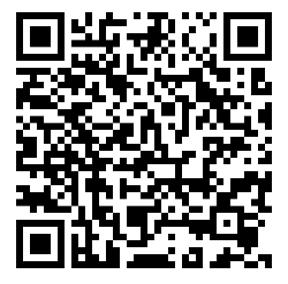

In April of 2024, Ekundayo, Black Men Build’s Director of Political Education & Culture, interviewed Dr. Cornel West during which they touched on various topics, from personal milestones to social causes.
Cornel shared insights from his upcoming lectures on philosophy and jazz music, emphasizing love, community connection, vulnerability, intimacy, and wounded healing. He and Ekundayo delved into the interplay between Black culture and white supremacy, advocating for freedom and the end of wars. Cornel emphasized the need for abolition in various forms to challenge militarized mentalities.
The discussion extended to societal issues like mass incarceration, economic disparity, and political hypocrisy. Cornel criticized leaders who perpetuate violence and ignore human suffering while highlighting the importance of truth-telling to expose injustices. They exchanged thoughts on influential figures like Harriet Tubman as models for collective liberation dedication.
West stressed the importance of personal freedom within the constraints of love and responsibility. The interview concluded with mutual appreciation for meaningful conversations reflecting a genuine connection rooted in shared values of justice and freedom.
Below is just a portion of the interview. To watch the full interview and read the full transcript, see QR below.
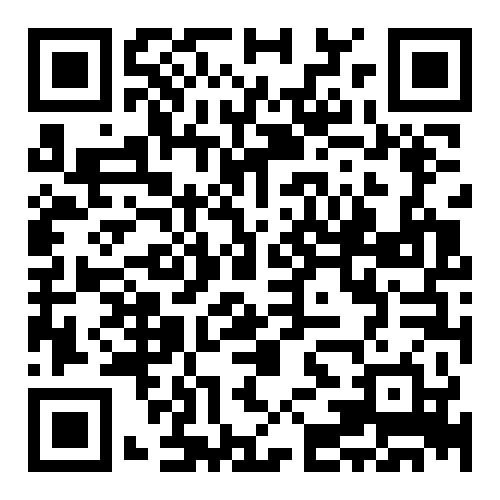
QEkundayo: You know, a big part of our work, particularly why it’s important for our organization, is because we just love each other. We understand how crucial it is not only that we live a long life but a healthy life—for our village, for our people, but first and foremost, for ourselves. I think that’s the language that needs to resonate in public discourse. It’s okay for Black men to care for themselves, first and foremost, just like any other human being should. You’re on the campaign trail, so how are your politics and your platform indirectly leaning towards the healing that Black men in our communities need?
Cornel West: Well, one thing is that we’ve got to be able to lessen and minimize the anxiety—psychic anxiety, economic anxiety, social anxiety. And, you have to have conditions in place. This is what policies have to address, ensuring that people have healthcare, jobs with a living wage, safe communities, and quality housing. Then it’s up to us to cultivate our capacities to treat each other right, to have quality relations, and so forth. But it’s very difficult to treat others right and have quality relations when you’re living paycheck to paycheck or broke every month.
It’s hard with social anxiety if you feel as if everyone’s looking at you as if you’re just a transaction, rather than seeing you as a human being. We also have to deal with psychic and spiritual anxiety. We all know we’re going to die, and just the fact of knowing that they are disappearing and vanishing Black bodies in time and space creates a certain kind of anxiety that no politician can fully address.
We need to acknowledge that reality and not let it become so overwhelming that it paralyzes us or pushes us into a purely transactional mode. Our grandmothers and ancestors got a lot of this right when they talked about the centrality of joy—they knew that joy was different from pleasure, a fruit of love and community. Despite the slavery or Jim Crow, their art and songs showed they held onto joy, something many of us struggle with today.
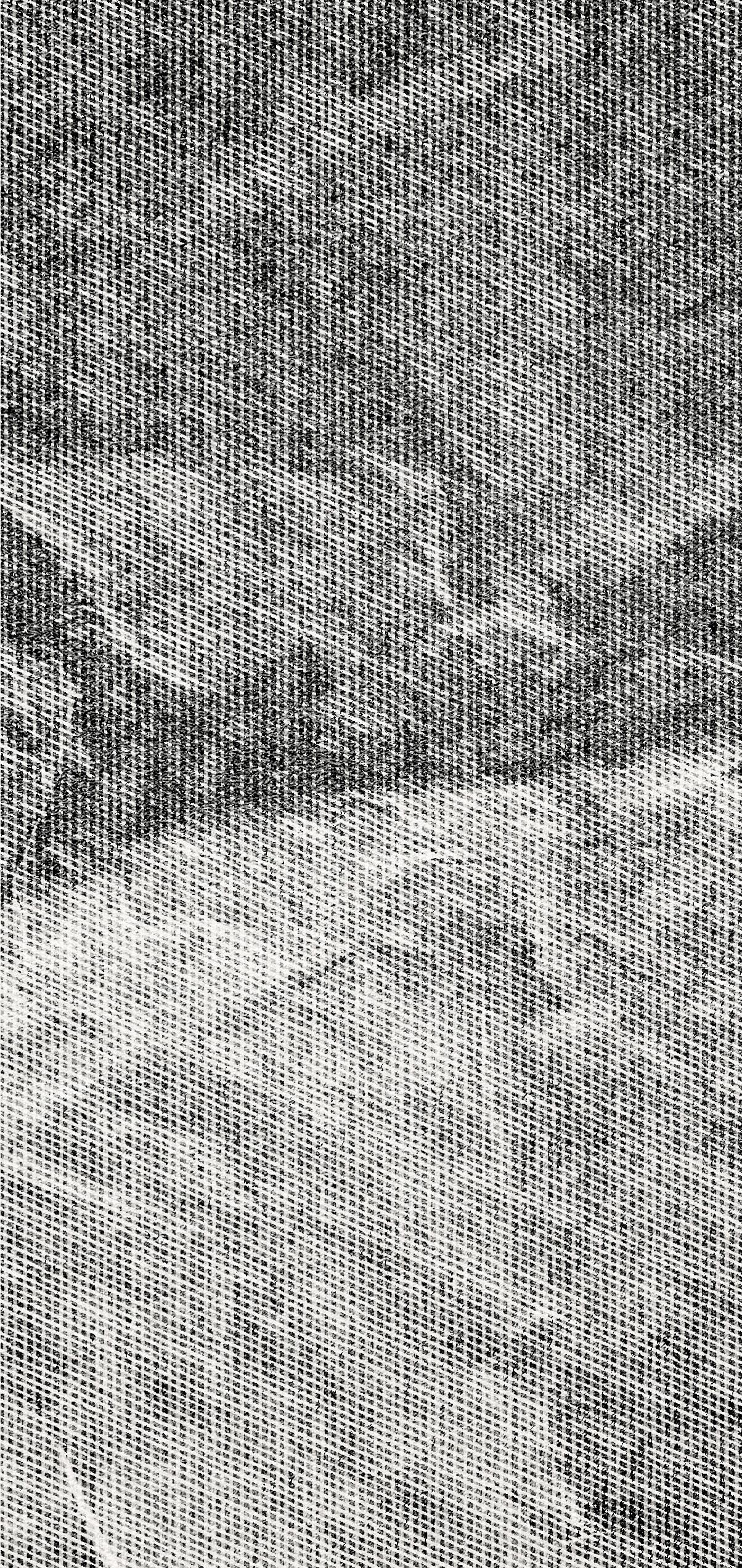

Ekundayo: It does take a certain level of community, connectedness, and spiritual strength to live with the reality you describe. Much of what I’ve been reading lately deals with notions of fugitivity. As Black people, we live a somewhat fugitive existence, from marooning to post-reconstruction and Jim Crow. We live under various levels of power that oppress us. But the level of freedom we’ve crafted is remarkable—it’s God’s work. What we’ve created from communities to spaces isn’t just about escape. It’s about finding something else, creating something else. Even someone on the run as a fugitive settles, finds ways to thrive in community. Being a fugitive is mostly because of imperial laws defining who is considered a fugitive.
ACornel West: Absolutely, brother. History shows us as pilgrims and sojourners. Our genius as Black people is that we have been able to find homes within fugitivity. There is an interplay; it’s not just wholesale fugitivity—it’s detailed, like jazz. It has a timing, influenced not just by what’s coming at us but also by choice. Like Robert Johnson, who was a pilgrim but also a fugitive when the hellhound was on his trail.
That’s the hound of greed, fear, envy. He’s a spiritual figure emerging out of Delta, Mississippi. We always want to keep the call and response nature of Black culture central. When Stephanie Mills sings about home in the Black version of ‘Wizard of Oz’, and when the mighty Dells sing about a house not being a home unless the heart is there, it shows we’ve been forced to be temporal people in a new world with no longterm connections to land. Yet, we have created homes as fugitives, pilgrims, with a vision of freedom, dignity, deeper community, and profound joy. We get a foretaste of that freedom in our music, in our art, in our community—the places where we find our joy and our home, even amid catastrophe.
Cornel West: For me, it begins at the visceral level, with the connection to my mom and dad and family. As Black people... integral to my love for them and my sense of them as free persons, they enable me to be as free as I am. I learned how to love by being loved by them. Whatever self-respect and selfregard I have were gifts from them, acts of grace that I take no credit for. My love for Harriet Tubman, for example, is profound because she was willing to give of herself for the larger goal of Black love, freedom, and community, which allows me to sit here in my right mind today.
And that becomes a pillar of what it means to be a love warrior, a freedom fighter, a wounded healer. Being a wounded healer is a high level of spiritual achievement; it’s endless. You never really reach the highest level; you can only approximate it.
ACornel West: A wounded healer acknowledges that we are all deeply scarred, bruised, and wounded by the world. We could strike back and become wounded hurters. Things could remain transactional—quid pro quo. You terrorize me, I terrorize you. But we need something transformative, both inside and among us. It’s about developing a rich capacity for vulnerability, intimacy with integrity, and never purity. If you’re obsessed with purity, you live in abstraction, never really touching the concrete realities of life.
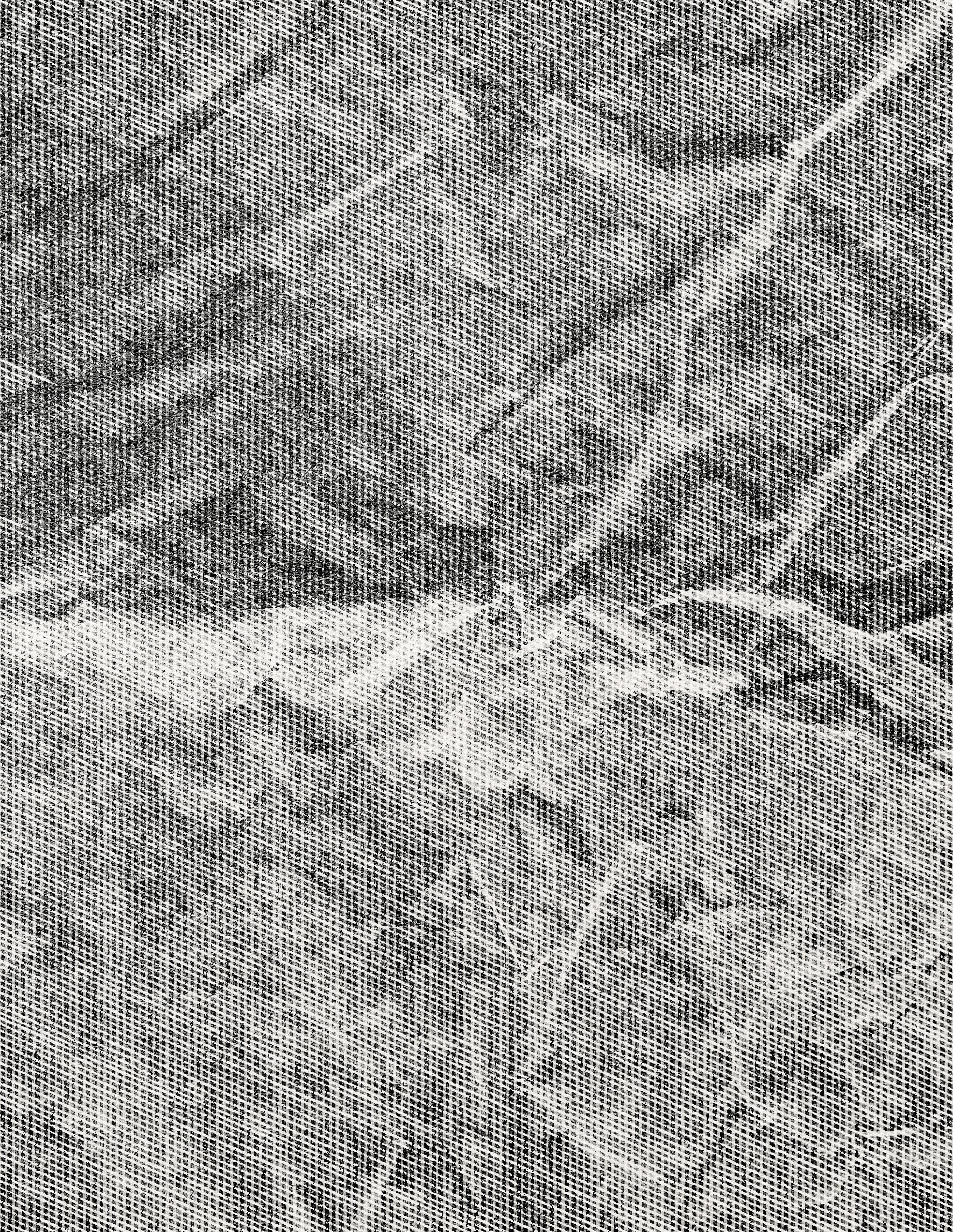

Ekundayo: It’s on a cellular level, right?
ACornel West: Absolutely, brother. That’s exactly right, on the cellular level because that’s about as embodied and corporeal as you can get.
QEkundayo: Our 7th of our 9 Bars states, “an end to all US wars, foreign and domestic, covert and overt by all known and unknown branches of the US Government.” We are clearly anti-war, anti-imperial. What does this mean for you and your work?
Cornel West: It’s crucial. Abolition is one of the most fundamental themes of the Black freedom struggle—abolition of slavery, Jim and Jane Crow, poverty, militarized police departments. When we talk about the end of war, we’re discussing a way to question militarized societies, mentalities, and communities. I’ve been campaigning, attending multiple events daily, visiting schools in the hood where there are more police than counselors or nurses.
We’re talking about demilitarizing the police to contain and suppress the chocolate side of town while protecting the vanilla side. Then you look at places like Gaza, which face outright genocide from extreme militarization and Cop City in Atlanta. This connects directly because militarized mentalities create some of the most hardened hearts, coarsened consciences, and chilly souls known to our species, turning them into what James Baldwin called moral monsters, or spiritual zombies who just don’t feel anything.
Cornel West: What Black people have done at our best, even though some of us get deeply assimilated because it’s very seductive, is create moments of interruption. We say, wait a minute, something is not right here. We need some distance from this madness. That’s what soul is—the sharing of soothing sweetness against the backdrop of grim catastrophes and deep wounds. And the question becomes, what will you do with your wounds? Transfigure them into something healing, or turn transactional and wound others as you were wounded?
This is the year of truth, where veils are ripped off, and chickens come home to roost, as Malcolm said. I want to pay tribute to you, Brother Phil, and BMB. You guys are not on anybody’s plantation. You’re free, embodying what it means to be love warriors, freedom fighters, joy spreaders like Louis Armstrong, and wounded healers. You’re breaking from any plantation, being truly free persons.
Ekundayo: That’s profound. Thank you, Dr. West. This discussion has been incredibly enriching.
